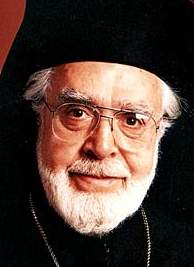
Iakovos
Iakovidis, Andreas (I.), English Andreas (J.) Jacovides (b. Dec. 19, 1936, Nicosia, Cyprus), Cypriot diplomat. He was ambassador to the United States (1979-89, 1993-96) and Germany, Austria, and Denmark (1990-92) and permanent representative to the United Nations (1992-93).
 Iakovos |
 Iakovou |
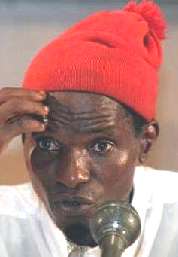 Ialá |
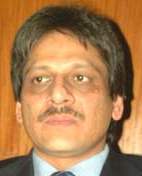 Ibad |
Ibanescu, Nicolae (b. June 2, 1931, Stâncaseni, Vaslui county, Romania), a deputy prime minister of Romania (1987-89). He was also first secretary of the party committee and chairman of the executive committee of Iasi county (1986-87).
Ibáñez (Gutiérrez), Adolfo (b. Nov. 28, 1827, Santiago, Chile - d. Aug. 12, 1898, Santiago), foreign minister (1871-75) and interior minister (1890) of Chile. He was also minister to Peru (1871) and the United States (1875) and minister of justice and education (1896).
Ibáñez (Ibáñez), Maximiliano (b. April 2, 1868, Linares, Chile - d. Dec. 27, 1933, Santiago, Chile), finance minister (1904) and interior minister (1910-11, 1916, 1925-26) of Chile. He was also minister to France (1918-21).
Ibáñez Águila, Bernardo (b. July 12, 1902, Antuco, Bío-Bío, Chile - d. Aug. 19, 1983), Chilean politician. He was secretary-general of the Socialist Party (1945-46) and a minor presidential candidate (1946).
 C. Ibáñez |
Ibáñez Freire, Antonio (b. Sept. 25, 1913, Vitoria, Spain - d. May 9, 2003, Madrid, Spain), interior minister of Spain (1979-80). He was also civil governor of Santander (1960-61), Vizcaya (1961-63), and Barcelona (1963-66), director-general of the Guardia Civil (1976-78), and captain-general of Catalonia (1978-79).
Ibáñez Martín, José, conde de Marín (b. Dec. 18, 1896, Valbona, Teruel province, Spain - d. Dec. 21, 1969, Madrid, Spain), Spanish politician. He was education minister (1939-51) and ambassador to Portugal (1958-69).
Ibaragi, Ryuta (b. July 29, 1966), governor of Okayama (2012- ).
Ibarra (Lozano), Aníbal (b. March 1, 1958, Lomas de Zamora, Buenos Aires province, Argentina), chief of government of Buenos Aires city (2000-06). He was suspended and ultimately removed from office over allegations that poor government safety regulation contributed to the death of 194 people in a December 2004 nightclub fire.
Ibarra, Juan, prime minister of Peru (1892). He was also minister of war and navy (1883 [insurrectionary government of Lizardo Montero], 1891-92, 1895-96) and interior and police (1892).
Ibarra Muñoz, Rogelio (b. Aug. 15, 1888, Asunción, Paraguay - d. July 8, 1936, Santiago, Chile), foreign minister of Paraguay (1923-24). He was also minister to Brazil (1924-28, 1933-34), Bolivia (1930-31), Peru (1931-33), and Chile (1934-36).
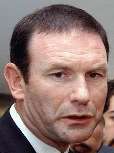 Ibarretxe |
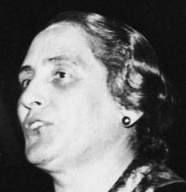 Ibárruri |
 Iberville |
Ibiam, Akanu, also known as (Sir) Francis Ibiam (b. Nov. 29, 1906, Unwana [now in Ebonyi state], Nigeria - d. July 1, 1995), governor of Eastern region, Nigeria (1960-66). He was baptized in 1919 and given the name Francis. In 1951 he was knighted. In 1967 he dropped his English name and renounced the knighthood, protesting against Britain's supply of military equipment to Nigeria during the Biafra secession.
Ibiapaba, Joaquim da Cunha Freire, barão de (b. Oct. 18, 1827, Caucaia, Ceará, Brazil - d. Oct. 13, 1907, Rio de Janeiro, Brazil), acting president of Ceará (1869, 1870-71, 1871, 1872, 1872, 1873, 1874). He was made baron in 1874.
Ibingira, Grace (Stuart K.) (b. May 23, 1932, Uganda - d. December 1995), Ugandan politician. He was justice minister (1962-64), minister of state (1964-66), permanent representative to the United Nations (1971-74), and information minister (1979-80).
Ibituruna, João Baptista dos Santos, barão e visconde de (b. June 14, 1828, São João del Rei, Minas Gerais, Brazil - d. Jan. 11, 1911, Rio de Janeiro, Brazil), president of Minas Gerais (1889). He was made baron in 1887 and viscount in 1889.
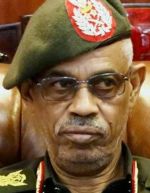 Ibn Auf |
Ibn Oumar (Said), Acheikh (b. July 13, 1951, Fort-Lamy [now N'Djamena], Chad), defense minister (1982) and foreign minister (1989-90) of Chad. He has also been minister of education (1981-82), permanent representative to the United Nations and ambassador to the United States (1992-93), and minister of state in charge of national reconciliation and dialogue (2021- ).
Ibongo Iyanga, Saturnino (b. Jan. 18, 1936, Ngonanmanga, Spanish Guinea [now Equatorial Guinea] - d. March 6?, 1969, Bata, Equatorial Guinea), Equatorial Guinean diplomat. He was permanent representative to the United Nations (1968-69). Following his alleged involvement in a coup attempt on March 5, 1969, he was arrested and later reported to have committed suicide in prison, though it is widely believed he was killed.
Ibori, James (Onanefu) (b. Aug. 4, 1958, Oghara [now in Delta state], Nigeria), governor of Delta (1999-2007).
Ibragimov, Ali (Ismail ogly) (b. Oct. 1 [Sept. 18, O.S.], 1913, Ust-Kara [now in Zabaikalsky kray], Russia - d. 1990), chairman of the Council of Ministers of the Azerbaijan S.S.R. (1970-81). He was also chairman of the State Planning Committee (1950-53, 1954-63), a deputy premier (1957-58), and first deputy premier (1965-70).
Ibragimov, Bakhtiyor, Uzbek diplomat. He has been permanent representative to the United Nations (2017- ).
Ibragimov, Gadzhi (Aga Khalil ogly) (b. 1923 - d. 1992), first secretary of the Communist Party committee of the Nakhichevan A.S.S.R. (1961-70).
Ibragimov, Mirza (Azhdar ogly) (b. Oct. 28 [Oct. 15, O.S.], 1911, Sarab province, Azarbaijan region, Iran - d. Dec. 17, 1993), chairman of the Presidium of the Supreme Soviet of the Azerbaijan S.S.R. (1954-58). He was also people's commissar/minister of education (1942-47).
Ibragimov, Mirzolim (Ibragimovich) (b. 1928, Fergana, Uzbek S.S.R. - d. Sept. 20/21, 2014), chairman of the Presidium of the Supreme Soviet of the Uzbek S.S.R. (1989-90). He was also chairman of the Executive Committee of Fergana oblast (1964-68), minister of the cotton industry (1968-73), first secretary of the party committee of Namangan oblast (1973-76), and chairman of the State Committee for Physical Culture and Sports (1976-88).
Ibragimov, Rakhim (Kireyevich) (b. Aug. 15 [Aug. 2, O.S.], 1904, Itkul, Orenburg province, Russia - d. Dec. 20, 1971, Ufa, Bashkir A.S.S.R., Russian S.F.S.R. [now Bashkortostan, Russia]), acting chairman of the Central Executive Committee (1937-38) and chairman of the Presidium of the Supreme Soviet (1938-46) of the Bashkir A.S.S.R. He was also minister of food industry (1946-53).
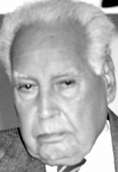 Abdallah Ibrahim |
Ibrahim, Abu al-Qasim Muhammad (b. 1937, Omdurman, Sudan), interior minister (1970-71) and first vice president (1977-79) of The Sudan. He was also minister of local government (1969-70), health (1971-74, 2000-01), agriculture, food, and natural resources (1974-76), and relations with the National Assembly (1996-2000).
Ibrahim, (Alhaji) Bukar Abba, early childhood name Bukar Fulata (b. October 1950, Goniri [now in Yobe state], Nigeria), governor of Yobe (1992-93, 1999-2007).
Ibrahim, Fahmi Said (b. Nov. 1, 1963, Moroni, Comoros), foreign minister of the Comoros (2010-11).
Ibrahim, Hafiz Mohammad (b. 1889, Bijnor district, North-Western Provinces [now in Uttar Pradesh], India - d. Jan. 24, 1968), governor of Punjab (1964-65). He was also Indian minister of irrigation and power (1958-63).
Ibrahim (al-Douri), Izzat, Arabic `Izzat Ibrahim al-Dawri (b. 1942, al-Dour, Iraq - d. Oct. 26, 2020), interior minister of Iraq (1974-79). He was vice chairman of the Revolutionary Command Council in 1979-2003. Reports that he died on Nov. 11, 2005, were later contradicted. By that time he was the "single most significant regime figure" still at large after the U.S.-led invasion of Iraq and overthrow of the Saddam Hussein regime in 2003. He was blamed for coordinating some of the attacks on U.S.-led forces and a $10 million reward was offered for his capture. In an audio message broadcast on al-Jazeera in March 2006, he urged the Arab League summit meeting in Khartoum to recognize "the Iraqi resistance as the sole legitimate representative of the Iraqi people" and to "boycott the regime of agents and traitors." He was reportedly killed in an operation by Iraqi security forces and Shia militia members on April 17, 2015, but this was apparently contradicted by the release of a new audiotape in May in which he commented on recent events.
Ibrahim, (Alhaji Mohammed) Malam Awwal (b. 1941), governor of Niger state (1979-83) and emir of Suleja (1993-94, 2000- ).
Ibrahim, Qasim, also spelled Gasim Ibrahim (b. Aug. 30, 1951, Maldives), finance minister (2005-08) and home affairs minister (2008) of Maldives. He was also a presidential candidate (2008, 2013) and speaker of the People's Special Majlis (2007-08) and the People's Majlis (2018-19).
Ibrahim Ismail ibni al-Marhum Sultan Iskandar, Tuanku (b. Nov. 22, 1958, Johor Bahru, Malaya [now in Malaysia]), regent (1984-89) and sultan (2010- ) of Johor; son of Tuanku Mahmud Iskandar ibni al-Marhum Sultan Ismail.
Ibrahimaj, Delina (b. Dec. 23, 1983, Tiranë, Albania), finance minister of Albania (2021- ).
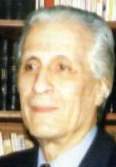 Ibrahimi |
Ibrahimovic, Hajrudin (b. April 15, 1957), acting premier of Sarajevo canton (2008-09).
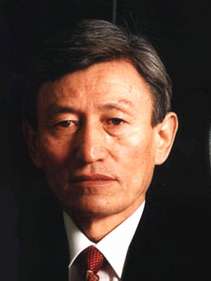 J. Ibraimov |
Ibraimov, Memet (Ibraimovich), chairman of the Council of People's Commissars of the Crimean A.S.S.R. (1937-42).
Ibraimov, Sultan (Ibraimovich) (b. Sept. 20, 1927, Alchalu, Kirgiz A.S.S.R., Russian S.F.S.R. [now in Chuy oblast, Kyrgyzstan] - d. [assassinated] Dec. 4, 1980, Cholpon-Ata, Issyk-Kul oblast, Kirgiz S.S.R.), chairman of the Presidium of the Supreme Soviet (1978) and chairman of the Council of Ministers (1978-80) of the Kirgiz S.S.R. He was also minister of irrigation and water management (1961-66) and first secretary of the party committee of Osh oblast (1968-78).
Ibraimov, Vely (b. 1889, Simferopol, Tavrida province, Russia [now in Crimea republic] - d. [executed] May 9, 1928, Simferopol), chairman of the Central Executive Committee of the Crimean A.S.S.R. (1924-28).
Ibraimova, Elmira (Sultanovna) (b. April 13, 1962, Frunze, Kirgiz S.S.R. [now Bishkek, Kyrgyzstan]), Kyrgyz politician; daughter of Sultan Ibraimov. She was permanent representative to the United Nations (1999-2001), a deputy prime minister (2008-09), and chairman of the Audit Chamber (2012-16).
Ibru, Alex(ander Uruemu) (b. March 1, 1945, Agbarha-Otor village, near Ughelli [now in Delta state], Nigeria - d. Nov. 20, 2011), interior minister of Nigeria (1993-95); brother of Felix Ibru.
Ibru, (Olorogun) Felix (Ovuodoroye) (b. Dec. 7, 1935, Agbarha-Otor village, near Ughelli [now in Delta state], Nigeria - d. March 12, 2016), governor of Delta (1992-93).
Ibuki, Bunmei (b. Jan. 9, 1938, Kyoto, Japan), finance minister of Japan (2008). He was also minister of labour (1997-98) and education, culture, sports, science, and technology (2006-07) and speaker of the House of Representatives (2012-14).
Icazuriaga (Medice), Héctor, byname Chango (b. Jan. 9, 1955, Chivilcoy, Buenos Aires province, Argentina), governor of Santa Cruz (2003). In 2003-14 he was head of the Intelligence Secretariat in the national government.
Ichimada, Hisato (b. Aug. 12, 1893, Oita prefecture, Japan - d. Jan. 22, 1984), finance minister of Japan (1954-56, 1957-58). He was also governor of the Bank of Japan (1946-54).
Ichimi, Katsuyuki (b. Jan. 30, 1963), governor of Mie (2021- ).
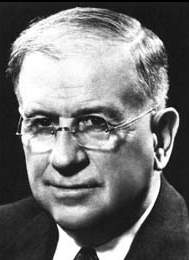 Ickes |
Ickonga, Auxence (b. July 27, 1937, Makoua, Middle Congo [now Congo (Brazzaville)] - d. Dec. 22, 1989, Brazzaville), foreign minister of Congo (Brazzaville) (1970-71); nephew of Charles Assemekang. He was also ambassador to Egypt (1966-69), France (1972-74), and the United Kingdom (1973-74) and agriculture minister (1969-70).
Idabaye (Ngarbaye), Daba, until 1973 Jacques Morbaye, defense minister of Chad (1973-75); nephew of N'Garta Tombalbaye.
Iddesleigh, Stafford Henry Northcote, (1st) Earl of, (1st) Viscount St. Cyres (b. Oct. 27, 1818, London, England - d. Jan. 12, 1887, London), British politician. He was president of the Board of Trade (1866-67), secretary of state for India (1867-68), chancellor of the exchequer (1874-80), and foreign secretary (1886-87). He succeeded his grandfather as (8th) baronet in 1851 and was created earl (and viscount) in 1885.
Iddrisu, Mahama, defense minister (1985-99) and interior minister (1996-97) of Ghana. He was also minister of local government (1978-79) and transport and communications (1982-85).
 Idiagbon |
Idiáquez (Cruz), Ismael de (b. 1858, Lima, Peru - d. 19...), finance minister of Peru (1919).
Idiarte Borda (Soumastre), Juan (Bautista) (b. April 20, 1844, Mercedes, Uruguay - d. [assassinated] Aug. 25, 1897, Montevideo, Uruguay), president of Uruguay (1894-97).
Idiatullin, Revo (Ramazanovich) (b. Oct. 2, 1938, Kazan, Tatar A.S.S.R., Russian S.F.S.R.), first secretary of the Communist Party committee of the Tatar A.S.S.R. (1990-91). He was also mayor of Kazan (1985-88).
Idigov, Akhyad (b. 1948, Kazakh S.S.R.), foreign minister of Chechnya (1998-99).
Idman, Karl Gustaf (b. Dec. 1, 1885, Tampere, Finland - d. April 13, 1961, Helsinki, Finland), foreign minister of Finland (1925). He was also minister to Denmark (1919-27), Hungary (1922-27), Latvia and Lithuania (1927-28), Czechoslovakia (1927-35), Poland and Romania (1928-38), Japan (1939-45), and Manchukuo (1941-45).
Ido, Toshizo (b. Aug. 10, 1945), governor of Hyogo (2001-21).
Idohou, Bodéhoussè Simon (b. May 23, 1950, Porto-Novo, Dahomey [now Benin]), Beninese diplomat. He was permanent representative to the United Nations (2005-06).
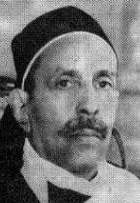 Idris I |
Idris, (Alhaji) Ibrahim (b. 1944), governor of Kogi (2003-08, 2008-12).
Idris (bin Haji) Haron, Datuk Seri (b. May 13, 1966, Jasin, Malacca, Malaysia), chief minister of Malacca (2013-18).
Idris ibn `Uthman, Shaykh, or Shehu Idris (b. Feb. 20, 1936, Zaria [now in Kaduna state], Nigeria - d. Sept. 20, 2020, Kaduna, Nigeria), emir of Zaria (1975-2020).
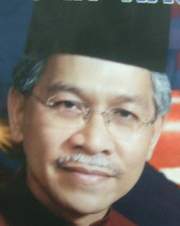 Idris Jusoh | 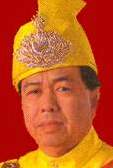 Idris Shah |
Idris Shah ibni al-Marhum Sultan Salehuddin Abdul Aziz Shah, Sharafuddin (b. Dec. 24, 1945, Klang, Selangor), sultan of Selangor (2001- ).
 Idrisov |
Idrus (bin Azizan) Harun, Tan Sri (b. 1955, Sanglang, Kedah, Malaya [now in Malaysia]), attorney general of Malaysia (2020- ). He was awarded the titles Dato' (1997), Datuk (2007), Dato' Sri (2013), and Tan Sri (2014).
Idsinga, Willem Hendrik Johan van (b. June 25, 1822, Baardwijk, Noord-Brabant, Netherlands - d. Nov. 16, 1896, The Hague, Netherlands), administrator of Sint Eustatius (1854-60) and Sint Maarten (1860-65) and governor-general of Dutch Guiana (1867-73); son-in-law of Reinier Frederik baron van Raders.
Idzumbuir Bolumbu Asal, originally Théodore Idzumbuir (b. Nov. 9, 1930, Lusanga, Belgian Congo [now in Kwilu province, Congo (Kinshasa)]), Zairian diplomat. He was permanent representative to the United Nations (1963-71), ambassador to the United Kingdom (1972), Brazil (1973-76), and the United States (1976-77), and state commissioner without portfolio (1981-82).
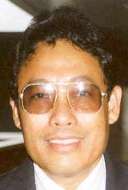 Iehsi |  Ielemia | 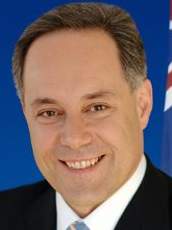 Iemma |
Ielemia, Apisai (b. Aug. 19, 1955 - d. Nov. 19, 2018, Funafuti Atoll, Tuvalu), prime minister (2006-10) and foreign minister (2006-10, 2010-13) of Tuvalu. He was also minister of environment, trade, labour, and tourism (2010-13).
Iemma, Morris (b. July 21, 1961, Sydney, N.S.W.), premier of New South Wales (2005-08).
 Ieng Sary |
Ieng Thirith, née Khieu Thirith (b. March 10, 1932 - d. Aug. 22, 2015), Cambodian politician; wife of Ieng Sary; sister-in-law of Pol Pot. She was minister of education (1975-76) and social affairs (1976-79).
Ierofei (b. 1727, Chernigov province, Russia [now in Ukraine] - d. Sept. 13 [Sept. 2, O.S.], 1799), metropolitan of Kiev (1796-99). He was also bishop of Chernigov (1788-96).
Iese, Irani name `Ali Qoli Khan, Ottoman name Mostafa Pasha (b. c. 1680 - d. 1727), king of K`art`li (1714-16, 1724-27).
Ieu Koeus (b. 1905, Sangkè district, Battambang province, Cambodia - d. [assassinated] Jan. 14, 1950, Phnom Penh), prime minister of Cambodia (1949). He was also interior minister (1949).
Iezekiel (b. 1913 - d. July 1, 1987, Athens, Greece), archbishop of the Greek Orthodox Archdiocese of Australia (1959-74). He resigned on Feb. 24, 1968, but was reelected on Aug. 12, 1969.
Iftodi, Victoria (b. Jan. 13, 1969, Lalova, Rezina district, Moldavian S.S.R.), justice minister of Moldova (2004-06, 2018-19). She was also ambassador to France (2006-09) and Algeria (2007-09).
Igbinedion, Lucky (Nosakhare) (b. May 13, 1957, Oredo, Nigeria), governor of Edo (1999-2007).
Ige, Bola (b. Sept. 13, 1930, Esa-Oke village [now in Osun state], Nigeria - d. [assassinated] Dec. 23, 2001, Bodija, Ibadan, Oyo state), governor of Oyo (1979-83) and justice minister of Nigeria (2000-01). He was also minister of power and steel (1999-2000).
Ige, David (Yutaka) (b. Jan. 15, 1957, Pearl City, Hawaii), governor of Hawaii (2014-22).
Igic, Ljubisa (b. May 31, 1941, Nis, Serbia), acting president of the Presidency of Serbia (1989).
Iglesias (García), Enrique (Valentín) (b. March 29, 1930, Arancedo parish, El Franco municipality, Asturias, Spain), foreign minister of Uruguay (1985-88), president of the Inter-American Development Bank (1988-2005), and secretary-general of the Ibero-American Secretariat (2005-14). An Uruguayan-Spanish dual citizen, he was president of Uruguay's central bank in 1966-68.
Iglesias (Argüelles), Gerardo (b. June 29, 1945, near Mieres, Asturias, Spain), general secretary of the Spanish Communist Party (1982-88).
Iglesias (Pino de Arce), Joaquín (b. 1822, Cajamarca, Peru - d. Feb. 27, 1888, Lima, Peru), prime minister and interior minister of Peru (1885); brother of Miguel Iglesias.
Iglesias (Pino de Arce), Lorenzo (b. July 24, 1841, Cajamarca, Peru - d. Oct. 15, 1885, near Canta, Peru), prime minister of Peru (1883); brother of Miguel Iglesias. He was also acting foreign and finance minister (1883).
Iglesias (Pino de Arce), Miguel (b. June 11, 1830, Cajamarca, Peru - d. Nov. 7, 1909, Madrid, Spain), president of Peru (1882-85). He was also prefect of Cajamarca (1865-68, 1872-73).
Iglesias, Pablo, byname of Paulino Iglesias Posse (b. Oct. 18, 1850, El Ferrol, Spain - d. Dec. 9, 1925, Madrid, Spain), Spanish political leader. President of the printers' union from 1874, he founded the Spanish Socialist Workers' Party (PSOE) in May 1879 and became its secretary and, from 1888, president. In 1882 he organized the first strike in Spain after the 1875 restoration of the monarchy. In 1886 El Socialista, the Socialist newspaper, was founded, with Iglesias as editor. He also headed the Socialist-affiliated General Union of Workers (UGT), organized in 1888. He guided the PSOE on a disciplined, austere, and evolutionary course, building up the organizations and educating the working class. He suffered imprisonment for his activity on several occasions between 1882 and 1909. Although for many years he scorned alliance with non-working-class parties, he believed in parliamentary and municipal political action. He was one of the first Socialists elected to the Madrid Municipal Council (1905) and to the Cortes, the Spanish parliament (1910), though the PSOE never surpassed 7 seats before his death. He opposed the more radical practice of pro-Bolshevik forces; in 1921 he helped prevent the PSOE from joining the Third International.
 Roberto Iglesias |
Iglesias (Rodríguez), Teófilo (A.) (b. 1888? - d. April 29, 1942, Washington, D.C.), finance minister (1936-37) and war minister (1939-40) of Peru.
Iglesias Castro, Rafael: see Yglesias Castro, Rafael.
Iglésias Navarri, Ramon (Catalan), Castilian Ramón Iglesias Navarri (b. Jan. 28, 1889, Durro, Spain - d. March 31, 1972, La Seu d'Urgel, Spain), co-prince of Andorra (1943-69).
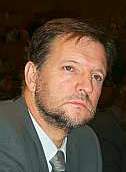 M. Iglesias |
Ignacio-Pinto, Louis (b. June 21, 1903, Porto-Novo, Dahomey [now Benin] - d. May 24, 1984, Dourdan, Essonne, France), Dahomey politician. He was minister of economy and industry (1957-58) and justice (1958-59), permanent representative to the United Nations (1960-67), ambassador to the United States (1961-67), president of the Supreme Court (1967-70), and a judge on the International Court of Justice (1970-79).
Ignar, Stefan (b. Feb. 17, 1908, Baldrzychów, Poland - d. Jan. 23, 1992, Warsaw, Poland), a deputy premier of Poland (1956-69). He was chairman of the United Peasants' Party (1956-62, 1981).
Ignatenko, Vitaly (Nikitich) (b. April 19, 1941, Sochi, Russian S.F.S.R.), a deputy prime minister of Russia (1995-97). He was also director-general of the TASS (from 1992 ITAR-TASS) news agency (1991-2012).
Ignatieff, George, originally Georgy (Pavlovich) Ignatyev (b. Dec. 16, 1913, St. Petersburg, Russia - d. Aug. 10, 1989, Sherbrooke, Que.), Canadian diplomat; son of Graf Pavel Ignatyev (1870-1945). He was ambassador to Yugoslavia (1956-58) and permanent representative to the United Nations (1966-69).
Ignatieff, Michael (Grant) (b. May 12, 1947, Toronto, Ont.), Canadian politician; son of George Ignatieff. Also known as a writer, he was leader of the Liberal Party (2008-11).
Ignatius, Gustaf (b. June 8, 1873, Helsingfors [now Helsinki], Finland - d. Dec. 21, 1949, Helsinki), governor of Kuopio (1918-40) and interior minister of Finland (1925-26).
Ignatov, Nikolay (Grigoryevich) (b. May 16 [May 3, O.S.], 1901, Tishanskaya village, near Tsaritsyn [now Volgograd], Russia - d. Nov. 14, 1966, Moscow, Russian S.F.S.R.), chairman of the Presidium of the Supreme Soviet of the Russian S.F.S.R. (1959, 1962-66). He was also first secretary of the party committees of Kuybyshev (1938-40), Oryol (1944-48), Voronezh (1954-55), and Gorky (1955-57) oblasti, Krasnodar kray (1949-52), and Leningrad city (1953) and Soviet minister of food reserves (1952-53), a deputy premier (1960-62), and chairman of the State Committee for Procurement (1961-62).
Ignatyev, Graf (Count) Aleksey (Pavlovich) (b. June 3 [May 22, O.S.], 1842, St. Petersburg, Russia - d. Dec. 22 [Dec. 9, O.S.], 1906, Tver, Russia), governor-general of East Siberia (1885-89, from 1887 Irkutsk) and Kiev, Podolia, and Volyn (1889-97); brother of Graf Nikolay Ignatyev; son of Graf Pavel Ignatyev (1797-1880).
Ignatyev, Leonid (Filippovich), acting first secretary of the Communist Party committee of the Udmurt A.S.S.R. (1959). He was second secretary in 1952-63.
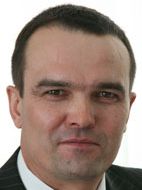 M. Ignatyev |
Ignatyev, Graf (Count) Nikolay (Pavlovich) (b. Jan. 29 [Jan. 17, O.S.], 1832, St. Petersburg, Russia - d. July 3 [June 20, O.S.], 1908, Krupodernitsy estate, Kiev province, Russia [now in Ukraine]), interior minister of Russia (1881-82); son of Graf Pavel Ignatyev (1797-1880). He was also envoy to China (1859-60), minister (1864-67) and ambassador (1867-77) to the Ottoman Empire, governor-general of Nizhny Novgorod (1879-80), and minister of state properties (1881).
Ignatyev, Graf (Count) Pavel (Nikolayevich) (b. June 18 [June 7, O.S.], 1797 - d. Jan. 1, 1880 [Dec. 20, 1879, O.S.]), chairman of the Committee of Ministers of Russia (1872-80). He was also governor-general of Vitebsk, Mogilyov, and Smolensk (1853-54) and Saint Petersburg (1854-61). He was made a count on Dec. 24, 1877.
Ignatyev, Graf (Count) Pavel (Nikolayevich) (b. July 12 [June 30, O.S.], 1870, Büyükdere, near Constantinople, Ottoman Empire [now Istanbul, Turkey] - d. Aug. 12, 1945, Upper Melbourne, Que.), Russian politician; son of Graf Nikolay Ignatyev. He was governor of Kiev (1907-09) and education minister (1915-17), later emigrating to Canada.
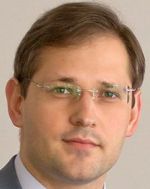 V. Ignatyev |
Igumnov, Gennady (Vyacheslavovich) (b. Oct. 27, 1936, Gubakha, Perm oblast [now in Perm kray], Russia - d. May 20, 2021, Perm, Russia), head of the administration of Perm oblast (1996-2000).
Ihlen, Alfred (b. Oct. 31, 1877, Haugsund [now Hokksund, Øvre Eiker municipality], Buskeruds amt [now in Viken fylke], Norway - d. Jan. 27, 1961), governor of Opland (1933-47).
Ihlen, Nils Claus (b. July 24, 1855, Skedsmo, Akershus [now in Viken], Norway - d. March 22, 1925, Skedsmo), foreign minister of Norway (1913-20). He was also minister of labour (1908-10) and industrial provisioning (1918).
Ihre, Albrecht Elof friherre (b. Oct. 6, 1797, Ekerö socken, Stockholm county, Sweden - d. Aug. 9, 1877, Ekerö socken), prime minister for foreign affairs of Sweden (1842-48). He was also chargé d'affaires in the Ottoman Empire (1827-31) and minister of ecclesiastical affairs (1840-42). He was made friherre (baron) in 1843.
Ihsanoglu, Ekmeleddin (Mehmet) (b. Dec. 26, 1943, Cairo, Egypt), secretary-general of the Organization of the Islamic Conference/Organization of Islamic Cooperation (2005-13). In 2014 he was a presidential candidate in Turkey.
Iivula-Ithana, Pendukeni, formerly (1980s) Pendukeni Kaulinge (b. Oct. 11, 1952, Uukwandongo, Omusati region, South West Africa [now Namibia]), home affairs minister of Namibia (2012-18). She was also minister of youth and sport (1991-96), lands, resettlement, and rehabilitation (1996-2001), and justice (2005-12) and attorney general (2001-08).
Iizumi, Kamon (b. July 29, 1960), governor of Tokushima (2003- ).
Ijape, Mathias (b. Jan. 12, 1954, Rapigy village, Goroka, Eastern Highlands, Papua and New Guinea [now Papua New Guinea] - d. May 2017, Goroka), defense minister of Papua New Guinea (1994-97). He was also minister of police (1988-92).
Ijuin, Hikokichi (b. June 1864, Kagoshima, Japan - d. April 26, 1924, Tokyo, Japan), governor-general of Kwantung (1922-23) and foreign minister of Japan (1923-24). He was also minister to China (1908-13) and ambassador to Italy (1916-20).
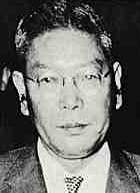 H. Ikeda |
Ikeda, Shigeaki, also known as Seihin Ikeda (b. Aug. 15, 1867, Yonezawa [now in Yamagata prefecture], Japan - d. Oct. 9, 1950), finance minister of Japan (1938-39). He was also governor of the Bank of Japan (1937) and minister of industry and commerce (1938-39).
Ikeda, Toyohito (b. July 15, 1961, Takamatsu, Kagawa, Japan), governor of Kagawa (2022- ).
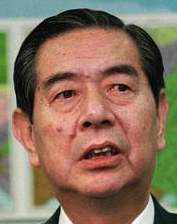 Y. Ikeda |
Ikimi, Tom (Omoghegbe) (b. April 10, 1944, Igueben, Edo state, Nigeria), foreign minister of Nigeria (1995-98).
Ikonomov, Todor (Poppetrov) (b. Aug. 29, 1838, Zheravna, Ottoman Empire [now in Bulgaria] - d. Oct. 28, 1892, Shumen, Bulgaria), interior minister of Bulgaria (1880). He was also mayor of Sofia (1880) and minister of public works, agriculture, and commerce (1883-84).
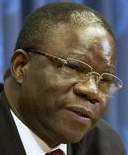 Ikouébé |
Ikramov, Akmal (Ikramovich) (b. September 1898, Tashkent, Russia [now in Uzbekistan] - d. [executed] March 15, 1938), executive secretary of the Communist Party of the Turkestan A.S.S.R. (1921) and first secretary of the Communist Party of the Uzbek S.S.R. and of the party committee of Tashkent city (1929-37).
Ikramov, Muzraf (Muborakkhodjayevich) (b. Sept. 14, 1973, Tashkent, Uzbek S.S.R.), justice minister of Uzbekistan (2015-17). He was also chairman of the Audit Chamber (2017-19).
Ikramullah, Mohammad (b. Jan. 15, 1903, Bhopal, India - d. Sept. 12, 1963, Rome, Italy), Pakistani diplomat. He was foreign secretary (1947-51, 1959-61), high commissioner to Canada (1952-53) and the United Kingdom (1955-59), and ambassador to France (1953-55) and Portugal (1958-60).
Ikramullah, Shaista Suhrawardy (b. July 22, 1915, Calcutta [now Kolkata], India - d. Dec. 11, 2000, Karachi, Pakistan), Pakistani diplomat; wife of Mohammad Ikramullah. She was ambassador to Morocco (1964-67).
Ikskul, Baron Boris (Vasilyevich), German Berend Johann Freiherr von Uexküll (b. Oct. 1, 1762, Reval, Russia [now Tallinn, Estonia] - d. May 11, 1827, Heimar, Russia [now Haimre, Estonia]), governor of Estonia (1808-18).
Ikskul fon Gildenband, Baron Aleksandr (Aleksandrovich), German in full Alexander Karl Abraham Freiherr von Uexküll-Güldenband (b. Feb. 20, 1840, St. Petersburg, Russia - d. July 10, 1912, St. Petersburg), governor of Livonia (1874-82), Kharkov (1884-86), and Pskov (1886-88).
Ikskul fon Gildenband, Baron Yuly (Aleksandrovich), German in full Julius Karl Freiherr von Uexküll-Güldenband (b. Dec. 16, 1852, or Jan. 16, 1853, Dvinsk, Russia [now Daugavpils, Latvia] - d. Sept. 21, 1918, Petrograd [St. Petersburg], Russia), Russian official; brother of Baron Aleksandr Ikskul fon Gildenband. He was secretary of state (1904-09).
Ikuga Ebombebombe, Andrés (b. Dec. 31, 1916), finance minister of Equatorial Guinea (1968-71).
Ikwechegh, Amadi (Guy) (b. Feb. 25, 1951, Igbere [now in Abia state], Nigeria - d. Nov. 11, 2009, United States), governor of Imo (1986-89).
Ila, Tony (b. March 16, 1944, Larian village, Papua [now in Gulf province, Papua New Guinea]), foreign minister of Papua New Guinea (1980). He was also minister of forestry (1978-79), labour and industry (1979-80), and labour and employment (1984-85, 1990-92).
Ilamanov, Amannazar, Turkmen Amannazar Ilamanow (b. 1943, Peshan-Ali, Mary oblast, Turkmen S.S.R. [now Mary velayat, Turkmenistan] - d. 2012), a deputy prime minister of Turkmenistan (1996-97). He was also minister of irrigation and water management (1992-96) and head of Mary velayat (1996-97).
Ilangaratne, Tikiri Banda, also spelled Illangaratne (b. Feb. 27, 1913, Hataraliyedda, Ceylon [now Sri Lanka] - d. May 21, 1992), finance minister of Ceylon (1963-64). He was also minister of labour, housing, and social services (1956-59), home affairs (1959), commerce, food, trade, and shipping (1960-63), trade and supply (1964-65), foreign and internal trade (1970-77), and public administration and home affairs (1975-77).
Ilarion (b. Dec. 30 [Dec. 20, O.S.], 1696, Sosnitsa, Malorossiya, Russia [now Sosnytsia, Ukraine] - d. Dec. 14 [Dec. 3, O.S.], 1760, Moscow, Russia), Locum Tenens of Moscow (1754-57). He was bishop of Krutitsy (1748-60).
Ilasievici, Constantin (b. March 7, 1880, Dorohoi, Romania - d. Oct. 6, 1955, Vacaresti, Romania), war minister of Romania (1937).
Ilcus, Ioan (b. Jan. 18, 1882, Rasinari, Transylvania, Hungary [now in Sibiu county, Romania] - d. 1977), war minister of Romania (1939-40).
Iléo (Songo Amba), Joseph (b. Sept. 15, 1921, Léopoldville, Belgian Congo [now Kinshasa, Congo (Kinshasa)] - d. Sept. 19, 1994, Brussels, Belgium), prime minister of Congo (Léopoldville) (1960, 1961). He was also president of the Senate earlier in 1960, as well as minister of information (1961-62) and president of the National Legislative Council (1979).
Ilhan, Vecdi (b. 1924, Kastamonu, Turkey - d. March 15, 2011), interior minister of Turkey (1979). He was also minister of forestry (1977, 1978-79).
Iliadis, Dimitris, English Demetris (J.) Eliades (b. December 1947, Lefkoniko, Famagusta district, Cyprus), defense minister of Cyprus (2011-13). He was also minister of agriculture, natural resources, and environment (2010-11).
Ilichev, Ivan (Ivanovich) (b. Aug. 14, 1905 - d. Sept. 2, 1983), Soviet high commissioner of Austria (1953-55). He was also head of the Soviet diplomatic mission to East Germany (1952-53) and ambassador to Austria (1953-56) and Denmark (1966-68).
Ilichev, Pyotr (Viktorovich) (b. March 11, 1966), Russian diplomat. He was chargé d'affaires at the United Nations (2017).
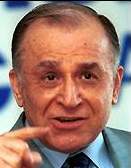 Iliescu |
Iliev, Ivan (Stoyanov) (b. Jan. 24, 1925, Oreshets, Bulgaria - d. Oct. 17, 2017, Sofia, Bulgaria), Bulgarian politician. He was a deputy premier and chairman of the State Planning Committee (1973-75, 1985-87).
 Ilimbetov | 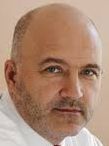 Ilkovsky |
Ilkin, Baki (b. Oct. 3, 1943, Ankara, Turkey - d. April 29, 2018), Turkish diplomat. He was ambassador to Pakistan (1987-90), Denmark (1990-93), the Netherlands (1996-98), and the United States (1998-2001) and permanent representative to the United Nations (2004-09).
Ilkovsky, Konstantin (Konstantinovich) (b. Jan. 12, 1964, Batagay, Yakut A.S.S.R. [now Republic of Sakha], Russian S.F.S.R.), governor of Zabaikalsky kray (2013-16).
Illanes de la Riva, Fernando (d. May 23, 2021), finance minister of Bolivia (1993-94). He was also ambassador to the United States (1986-87), minister of energy and hydrocarbons (1987-88) and planning and coordination (1993), and minister without portfolio with responsibility for hydrocarbons (2002-03).
Illarionov, Ivan (Illarionovich) (b. Nov. 18 [Nov. 6, O.S.], 1893, Malaya Shatma, Kazan province [now in Chuvashia republic], Russia - d. Nov. 19, 1969, Ulyanovsk, Russian S.F.S.R.), chairman of the Executive Committee of Chuvash autonomous oblast (1924-25) and chairman of the Executive Committee of Soviets (1925-26) and the Central Executive Committee (1926-27) of the Chuvash A.S.S.R. He was also mayor of Cheboksary (1925).
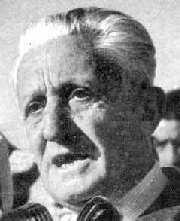 Illia |
Illingworth, James (Timothy Edward) (b. 1966), administrator of the British Sovereign Base Areas in Cyprus (2017-19).
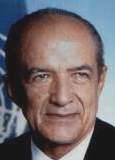 Illueca |
Illy, Riccardo (b. Sept. 24, 1955, Trieste, Italy), president of Friuli-Venezia Giulia (2003-08).
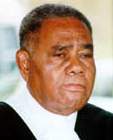 Iloilo |
Ilon, Epel K(alwin) (b. April 8, 1952, Mortlocks, Truk [now Chuuk], Micronesia [now in Federated States of Micronesia]), foreign secretary of the Federated States of Micronesia (1991-92 [acting], 1997-2000).
Ilongo Tokole, Jean (b. Nov. 9, 1968, Lufulutulu, Congo [Kinshasa]), special commissioner (2015-16) and governor (2016-17) of Tshopo.
Ilsley, James (Lorimer) (b. Jan. 3, 1894, Somerset, N.S. - d. Jan. 14, 1967, Halifax, N.S.), finance minister of Canada (1940-46). He was also minister of national revenue (1935-40) and justice (1946-48) and acting postmaster general (1940).
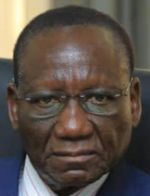 Ilunga |  Ilves |
Ilves, Toomas Hendrik (b. Dec. 26, 1953, Stockholm, Sweden), foreign minister (1996-98, 1999-2002) and president (2006-16) of Estonia. In 1993-96 he was ambassador to the United States. As foreign minister, he oversaw the country's successful drive to be included in the first wave of East European nations accepted for fast-track negotiations for EU membership. He resigned in 1998 to prepare his conservative People's Party for the March 1999 election. After that election, he returned to the post. Later that year the People's Party was absorbed by the Moderates.
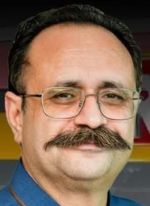 Ilyas |
Ilyashenko, Kirill (Fyodorovich) (b. May 27 [May 14, O.S.], 1915, Lipetskoye, Russia [now in Odessa oblast, Ukraine] - d. April 21, 1980, Kishinev, Moldavian S.S.R. [now Chisinau, Moldova]), chairman of the Presidium of the Supreme Soviet of the Moldavian S.S.R. (1963-80). He was also a deputy premier (1963).
Ilyasov, Magzhan (Zhanbotauly) (b. Aug. 26, 1974, Alma-Ata, Kazakh S.S.R. [now Almaty, Kazakhstan]), Kazakh diplomat. He was ambassador to the Netherlands (2016-20) and permanent representative to the United Nations (2020-22). In 2022 he was appointed ambassador to the United Kingdom.
 S. Ilyasov |  Ilyukhin |
Ilyin, Ilya (Moiseyevich), original surname Broytman (b. 1893, Ananyev, Kherson province, Russia [now in Odessa oblast, Ukraine] - d. April 1973, Kishinev, Moldavian S.S.R. [now Chisinau, Moldova]), executive secretary of the Communist Party committee of the Moldavian A.S.S.R. (1930-31).
Ilyin, Kuzma (Sergeyevich) (b. 1891, Kondoy ulus, Irkutsk province, Russia - d. [executed] Dec. 9, 1937, Irkutsk, Russian S.F.S.R.), chairman of the Central Executive Committee and of the Council of People's Commissars of the Buryat-Mongol A.S.S.R. (1927-29).
Ilyinsky, Mikhail (Sergeyevich), governor of Bessarabia (1854-57).
Ilyukhin, Vladimir (Ivanovich) (b. June 25, 1961, Novonikolayevka village, Krasnoyarsk kray, Russian S.F.S.R.), governor of Kamchatka kray (2011-20).
 Ilyumzhinov |
Ilyushin, Viktor (Vasilyevich) (b. July 4, 1947, Nizhny Tagil, Sverdlovsk oblast, Russian S.F.S.R.), a first deputy prime minister of Russia (1996-97).
Imami, Arben (Fahri) (b. Jan. 21, 1958, Tiranë, Albania), defense minister of Albania (2009-13). He was also minister of legislative reform and relations with parliament (1997-99), justice (2000-01), and local government and decentralization (2001-02) and chief of cabinet of the prime minister (2005-09).
Imanaliyev, Muratbek (Sansyzbayevich) (b. Feb. 25, 1956, Frunze, Kirgiz S.S.R. [now Bishkek, Kyrgyzstan]), foreign minister of Kyrgyzstan (1991-92, 1997-2002) and secretary-general of the Shanghai Cooperation Organization (2010-12). In 1993-96 he was ambassador to China.
Imashev, Sattar (Nurmashevich) (b. March 20, 1925, Birlik, Russian S.F.S.R. [now in Atyrau oblast, Kazakhstan] - d. Feb. 22, 1984), chairman of the Presidium of the Supreme Soviet of the Kazakh S.S.R. (1979-84). He was also chairman of the Supreme Soviet (1975-79).
 Imbali |
Imbassahy (da Silva), Antônio José (b. March 12, 1948, Salvador, Bahia, Brazil), governor of Bahia (1994-95). He was also mayor of Salvador (1997-2005).
Imbaud, Carlos Alfredo (b. Jan. 14, 1925 - d. Jan. 28, 2022, Buenos Aires, Argentina), federal interventor (1962) and governor (1970-71) of Tucumán.
Imbert, Colm (Peter), finance minister of Trinidad and Tobago (2015- ). He was also minister of works and transport (1991-95, 2005-10), local government (1994-95), health (2001-03), and science, technology, and tertiary education (2003-05).
Imbert Barrera, Antonio (Cosme) (b. Dec. 3, 1920, Puerto Plata, Dominican Republic - d. May 31, 2016, Santo Domingo, Dominican Republic), member of the Civic-Military Council (1962), president (1965), and defense minister (1986-88) of the Dominican Republic. He was the last surviving member of the group responsible for the 1961 assassination of dictator Rafael Trujillo.
Imbiriba, Mário Fernandes (b. Sept. 20, 1904, Santarém, Pará, Brazil - d. April 9, 1972), governor of Fernando de Noronha (1945-51).
 Imbroda |
Imbulana, P(rema) C(handra) (b. Oct. 18, 1920 - d. Sept. 28, 2012), governor of Uva (1988-90) and Central (1990-94) provinces, Sri Lanka. He was minister of labour in 1984-88.
Imfeld, Hans (b. June 21, 1902, Sarnen, Obwalden, Switzerland - d. July 3, 1947, Saigon, Vietnam), French commissioner of Laos (1945-46). He emigrated to France in 1922 where he attended the schools of officers of Poitiers and Fontainebleau. He entered the resistance in 1943 and was condemned to death by the Vichy government. He was on a mission in China in 1943-44, and he secured the restoration of the French protectorate over Laos in 1945. He was assassinated by the Communist Viet Minh.
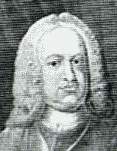 Imhoff |
Imhoff, Gustaaf Willem baron van (b. Nov. 22, 1767, Groningen - d. Feb. 13, 1830, Groningen), governor of Groningen (1814-30); grandson of the above.
 Immongault |
Imnadze, Akaky (Gabriyelovich) (b. 1908 - d. ...), first secretary of the Communist Party committee of the South Ossetian autonomous oblast (1949-53).
Imnadze, Kakha (b. Feb. 4, 1969, Tbilisi, Georgian S.S.R.), Georgian diplomat. He has been permanent representative to the United Nations (2013-22) and ambassador to Canada (2022- ).
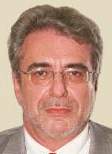 Imperti |
Imrédy (de Ómoravica), Béla (b. Dec. 29, 1891, Budapest, Hungary - d. [executed] Feb. 28, 1946, Budapest), finance minister (1932-35), prime minister (1938-39), and acting foreign minister (1938) of Hungary. He was also president of the Hungarian National Bank (1935-38) and a minister without portfolio (1938).
Imru, Leul Ras (Haile Selassie) (b. Nov. 23, 1892, Gursum, eastern Ethiopia - d. Aug. 15, 1980, Addis Ababa, Ethiopia), regent of Ethiopia (1936). He was raised to the personal titles of Gerazmatch (1909), Kniazmatch (1911), Dejazmatch (1917), Ras (1932), and Leul Ras (1954). He was governor-general of Wollo (1929-32) and Gojjam (1932-35) provinces. In 1936-43 he was imprisoned in Italy. He was minister (1946-49) and ambassador (1949-53) to the United States and ambassador to India (1954-59).
Imru, (Lij) Mikael (b. November 1929, Addis Ababa, Ethiopia - d. October 2008), foreign minister (1961) and prime minister (1974) of Ethiopia; son of Leul Ras Imru. He was ambassador to the United States (1960-61) and the Soviet Union (1961-65) and minister of industry and commerce (1974) and information (1974-75).
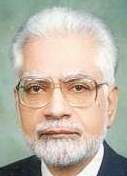 Inam |
Inamine, Keiichi (b. Oct. 14, 1933), governor of Okinawa (1998-2006).
Inayatullah Shah (b. Oct. 20, 1888, Kabul, Afghanistan - d. Aug. 12, 1946), king of Afghanistan (1929).
Ince, Refik Sevket, until Jan. 1, 1935, Mehmet Refik Bey (b. 1885, Mitilini, Greece - d. April 24, 1955, Istanbul, Turkey), defense minister of Turkey (1950-51).
Inculet, Ion (Constantin) (b. April 18 [April 5, O.S.], 1884, Rezeni, Russia [now in Moldova] - d. Nov. 18, 1940, Bucharest, Romania), president of the Bessarabian National Council (1918) and interior minister of Romania (1933-36). He was also minister of health and social protection (1927-28).
Indacochea (Galarreta), Enrique (b. 1901, Arequipa, Peru - d. ...), war minister of Peru (1955-56).
Indinok, Ivan (Ivanovich) (b. Aug. 6, 1938), head of the administration of Novosibirsk oblast (1993-95). He was also mayor of Novosibirsk (1988-90, 1991-93).
Indrebø, Adolf (Oliverson) (b. Feb. 7, 1884, Hafstad, Førde municipality, Nordre Bergenhus [now in Vestland], Norway - d. Dec. 5, 1942), finance minister of Norway (1935-36). He was also mayor of Oslo (1929-31).
Indrenius, Bernhard (b. Jan. 16, 1812, Fredrikshamn [Hamina], Finland - d. Oct. 23, 1884, St. Petersburg, Russia), governor of Sankt Michel (1856) and Viborg (1856-66) and acting governor-general of Finland (1866, 1867).
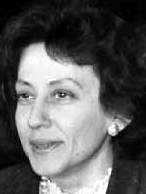 Indzhova |
Infantado, Pedro Alcántara de Toledo y Salm-Salm, (XIII) duque del (b. July 20, 1768, Madrid, Spain - d. Nov. 27, 1841, Madrid), president of the Regency (1812 [in Resistance], 1823) and first secretary of state (1825-26) of Spain. He was also ambassador to the United Kingdom (1811). He succeeded as duke in 1790.
Ingebretsen, Paul Ingolf (b. Oct. 15, 1904, Stavanger, Stavanger amt [now Rogaland fylke], Norway - d. Aug. 16, 1968), governor of Rogaland (1959-68).
Ingerslev, Hans Peter (b. May 3, 1831, Århus [now Aarhus], Denmark - d. April 20, 1896, Copenhagen, Denmark), interior minister of Denmark (1885-94).
Ingersoll, Charles R(oberts) (b. Sept. 16, 1821, New Haven, Conn. - d. Jan. 25, 1903, New Haven), governor of Connecticut (1873-77); brother of Colin M. Ingersoll; son of Ralph I. Ingersoll.
Ingersoll, Colin M(acrae) (b. March 11, 1819, New Haven, Conn. - d. Sept. 13, 1903, New Haven), U.S. politician; son of Ralph I. Ingersoll. He was chargé d'affaires in Russia (1848) and a member of the House of Representatives (1851-55).
Ingersoll, George P(ratt) (b. April 24, 1861, New Haven, Conn. - d. Feb. 24, 1927, Stamford, Conn.), U.S. diplomat; son of Colin M. Ingersoll. He was minister to Siam (1917-18).
Ingersoll, Joseph R(eed) (b. June 14, 1786, Philadelphia, Pa. - d. Feb. 20, 1868, Philadelphia), U.S. politician; second cousin of Ralph I. Ingersoll. He was a member of the House of Representatives (1835-37, 1841-49) and minister to the United Kingdom (1852-53).
Ingersoll, Ralph I(saacs) (b. Feb. 8, 1789, New Haven, Conn. - d. Aug. 26, 1872, New Haven), U.S. politician. He was a member of the House of Representatives (1825-33), minister to Russia (1846-48), and mayor of New Haven (1851).
Ingham, Samuel D(elucenna) (b. Sept. 16, 1779, near New Hope, Pa. - d. June 5, 1860, Trenton, N.J.), U.S. treasury secretary (1829-31).
Ingman, Lauri (Johannes), originally Lars Johannes Ingman (b. June 30, 1868, Teuva, Finland - d. Oct. 25, 1934, Turku, Finland), prime minister of Finland (1918-19, 1924-25). He was also speaker of parliament (1918), minister of education (1920-21, 1924-25, 1925-26, 1928-29), and archbishop of Turku (1930-34).
Ingólfsson, Thorsteinn (b. Dec. 9, 1944, Reykjavík, Iceland), Icelandic diplomat. He was permanent representative to the United Nations (1998-2003) and ambassador to Cuba and Barbados (2001-04) and Jamaica (2003-04).
Ingr, (Jan) Sergej (b. Sept. 2, 1894, Vlkos u Vyskova, Austria-Hungary [now in Czech Republic] - d. June 17, 1956, Paris, France), defense minister of Czechoslovakia in exile (1940-44).
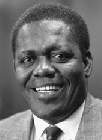 Ingraham |
 Ingstad |
Inguanez, Carmelo (b. Dec. 19, 1961, Birkirkara, Malta), Maltese diplomat. He has been ambassador to Russia (2009-11), Italy and San Marino (2011-13), Tunisia (2013-16), and France (2019- ) and permanent representative to the United Nations (2016-19).
Ingvarsson, Ingvi S(igurdur) (b. Dec. 12, 1924, Reykjavík, Iceland - d. Aug. 26, 2009, Reykjavík), Icelandic diplomat. He was permanent representative to the United Nations (1973-77) and ambassador to Sweden and Finland (1977-82), Yugoslavia (1977-83), Albania (1978-83), Saudi Arabia (1981-82), the United States (1986-90), Argentina and Canada (1987-91), Brazil (1987-92), Chile (1987-94), Mexico (1988-91), Denmark, Lithuania, and Italy (1991-94), China (1991-95), and Turkey and Israel (1992-94).
Inhambupe (de Cima), Antonio Luiz Pereira da Cunha, visconde e marquês de (b. April 6, 1760, São Salvador da Bahia [now Salvador], Brazil - d. Sept. 18, 1837, Rio de Janeiro, Brazil), finance minister (1826), foreign minister (1826-27), and principal minister (1831) of Brazil. He was also president of the Senate (1837). He was made viscount in 1824 and marquess in 1826.
Inhomirim, Francisco de Sales Torres Homem, visconde de (b. Jan. 29, 1812, Rio de Janeiro, Brazil - d. June 3, 1876, Paris, France), finance minister of Brazil (1858-59, 1870-71). He was also president of the Bank of Brazil (1866-69). He was made viscount in 1872.
Inienger, John (Mark) (b. April 16, 1945, Mkar area [now in Benue state], Nigeria - d. Feb. 8, 2002, in his car en route from Jos to Makurdi, Nigeria), governor of Bendel (1985-87).
Íñiguez (Larraín), Pedro Felipe (José) (b. Sept. 29, 1873, Santiago, Chile - d. Feb. 12, 1936, Santiago), justice (and education) minister of Chile (1916-17); son-in-law of Augusto Matte. He was also chargé d'affaires in France (1901) and minister of industry, public works, and railways (1915).
Innih, George (Agbazika) (b. Sept. 25, 1938, Agenebode [now in Edo state], Nigeria - d. Aug. 15, 2002, Germany), governor of Mid-Western state (1975-76) and Kwara (1976-78).
Inniss, Sir Probyn (Ellsworth) (b. Nov. 18, 1936, St. Kitts - d. March 12, 2017), governor of St. Kitts and Nevis (1975-81); knighted 1976.
Innitzer, Theodor Cardinal (b. Dec. 25, 1875, Weipert, Austria [now Vejprty, Czech Republic] - d. Oct. 9, 1955, Vienna, Austria), Austrian politician. He was rector of the University of Vienna (1928-29), minister of social administration (1929-30), and archbishop of Vienna (1932-55; a cardinal from 1933).
Innokenty, secular name Ivan (Yevseyevich) Veniaminov, original surname (until 1814) Popov (b. Sept. 6 [Aug. 26, O.S.], 1797, Anga, Irkutsk province, Russia - d. April 12 [March 31, O.S.], 1879, Moscow, Russia), metropolitan of Moscow (1868-79). He was also bishop (1840-50) and archbishop (1850-68) of Kamchatka. He was canonized in 1977.
Innokenty, secular name Ivan (Vasilyevich) Belyayev (b. Oct. 5 [Sept. 23, O.S.], 1862, Vladimir province, Russia - d. Sept. 22 [Sept. 9, O.S.], 1913, St. Petersburg, Russia), exarch of Georgia (1909-13). He was also bishop of Sumy (1899-1901), Narva (1901-03), and Tambov (1903-09).
Inonga Lokongo L'Ome (b. Jan. 12, 1939, Befale, Coquilhatville province, Belgian Congo [now in Tshuapa province, Congo (Kinshasa)] - d. June 20, 1991, Johannesburg, South Africa), foreign minister of Zaire (1980-81, 1991). He was ambassador to Belgium and Luxembourg in 1976-80 and permanent representative to the United Nations in 1984-85.
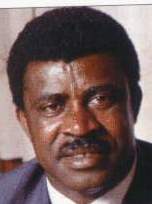 Inoni | 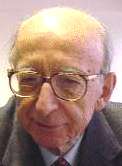 E. Inönü |
Inönü, Erdal (b. June 7, 1926, Ankara, Turkey - d. Oct. 31, 2007, Houston, Texas), acting prime minister (1993) and foreign minister (1995) of Turkey; son of Ismet Inönü. He was also deputy prime minister (1991-93) and leader of the Social Democracy Party (1983, 1983-85) and the Social Democratic Populist Party (1986-93).
 I. Inönü |
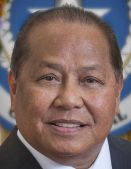 Inos |
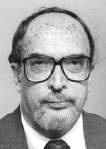 Insanally |
Insenstierna, Fredrik Ulrik (b. Dec. 21, 1723 - d. Nov. 12, 1768, Stockholm, Sweden), governor of Västmanland (1763-68).
Insfrán, Gildo (b. Jan. 19, 1951, Laguna Blanca, Formosa, Argentina), governor of Formosa (1995- ).
Inslee, Jay (Robert) (b. Feb. 9, 1951, Seattle, Wash.), governor of Washington (2013- ). He was also a member of the U.S. House of Representatives (1993-95, 1999-2012). In March 2019 he joined the race for the 2020 Democratic presidential nomination, dropping out in August.
Insulza (Salinas), José Miguel (b. June 2, 1943, Santiago, Chile), foreign minister (1994-99) and interior minister (2000-05) of Chile and secretary-general of the Organization of American States (2005-15).
Insunza (Barrios), Sergio (Dagoberto) (b. May 6, 1919, Santiago, Chile - d. July 19, 2014), justice minister of Chile (1972-73).
Intelmann, Tiina (b. Aug. 25, 1963, Tallinn, Estonian S.S.R.), Estonian diplomat. She has been permanent representative to the United Nations (2005-10), ambassador to Israel (2011), Montenegro (non-resident, 2011), and the United Kingdom (2017-21), and head of delegation of the European Union to Liberia (2014-17) and Somalia (2021- ).
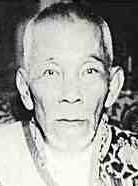 Inukai |
 Inzko |
Inzov, Ivan (Nikitich) (b. Jan. 3, 1769 [Dec. 23, 1768, O.S.] - d. June 8 [May 27, O.S.], 1845, Odessa, Russia [now in Ukraine]), governor-general of Novorossiya and Bessarabia (1822-23).
Ioakim, secular name Ivan (Petrovich) Savelov (b. Jan. 16 [Jan. 6, O.S.], 1620 - d. March 27 [March 17, O.S.], 1690, Moscow, Russia), patriarch of Moscow (1674-90). He was also metropolitan of Novgorod (1672-74).
Ioane, Aumua, also called Aumua John Wendt, finance minister of Western Samoa (1975-76). He was also minister of works, transport, and marine (1974-75).
Ioann, secular name Ilya (Viktorovich) Vitushkin (b. Aug. 2, 1926, Yelokhino village, Yaroslavl oblast, Russian S.F.S.R. - d. May 25, 2010), bishop of Kiev (1988-92) and Kostroma and Yaroslavl (1992-2010), Locum Tenens of the Russian Orthodox Old Believers Church (2004, 2005).
Ioann V, secular name Ivan (Aleksandrovich) Sokolov (b. Jan. 13 [Jan. 1, O.S.], 1877, Dmitrov, Moscow province, Russia - d. March 29, 1968, Kiev, Ukrainian S.S.R.), metropolitan of Kiev (1944-64). He was also bishop of Kimry (1929-31), Orekhovo-Zuyevo (1931-34), Podolsk (1934), Yegoryevsk (1934-36), Volokolamsk (1936), and Arkhangelsk (1937-38) and archbishop of Arkhangelsk (1938-39), Ulyanovsk (1941-42), and Yaroslavl (1942-44).
 Ioannes XXIII |
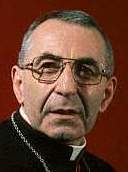 Ioannes Paulus I |
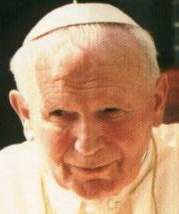 Ioannes Paulus II |
Ioannidis, Georgios, English George (X.) Ioannides (b. 1924, Ktima, Paphos, Cyprus - d. 1995), justice minister (1970-72, 1975-78) and interior and defense minister (1972-74) of Cyprus.
Ioanniky, secular name Ivan (Maksimovich) Rudnev (b. March 4 [Feb. 20, O.S.], 1826, Vyshneye Skvorcheye, Tula province, Russia - d. June 20 [June 7, O.S.], 1900, near Kiev, Russia [now in Ukraine]), metropolitan of Moscow (1882-91). He was also bishop of Vyborg (1861-64) and Saratov (1864-73), bishop (1873-77) and archbishop (1877) of Nizhny Novgorod, exarch of Georgia (1877-82), and metropolitan of Kiev (1891-1900).
Ioannou, Konstantinos (b. March 24, 1969), interior minister of Cyprus (2023- ). He was also health minister (2018-21).
Ioasaf, secular name Pavel (Dmitriyevich) Kallistov (b. 1850, Kostroma province, Russia - d. Feb. 3, 1920), Locum Tenens of Moscow (1917). He was bishop of Novo-Georgievsk (1912-17) and Dmitrov (1917-18) and archbishop of Kolomna (1918-19) and Krutitsy (1919-20).
Ioasaf II, secular name Vitaly (Mikhailovich) Lelyukhin (b. May 11 [April 28, O.S.], 1903, Dubosishche, Smolensk province, Russia - d. April 24, 1966, Kiev, Ukrainian S.S.R.), metropolitan of Kiev (1964-66). He was also bishop of Sumy (1958-59), Dnepropetrovsk (1959-61), and Vinnitsa (1961-64).
Iona, secular name Ivan (Semyonovich) Vasilyevsky (b. March 1 [Feb. 18, O.S.], 1763, Kaluga, Russia - d. July 4 [June 22, O.S.], 1849, St. Petersburg, Russia), exarch of Georgia (1821-32). He was also bishop of Tambov (1812-21) and archbishop of Astrakhan (1821).
 Ionatana |
Ionescu, Constantin Dudu (b. May 21, 1956, Bucharest, Romania), defense minister (1998) and interior minister (1999-2000) of Romania.
Ionescu, Nicolae (b. 1820, Bradu, Moldavia [now in Romania] - d. Jan. 24, 1905, Bradu), foreign minister of Romania (1876-77).
Ionescu, Take (also spelled Tache), original name Dumitru (Ghita) Ioan (b. Oct. 25 [Oct. 13, O.S.], 1858, Ploiesti, Romania - d. June 22, 1922, Rome, Italy), foreign minister (1920-21) and prime minister (1921-22) of Romania. He was also minister of education and worship (1891-95, 1899-1900), finance (1900, 1905-07), and interior (1912-14).
Ionescu-Quintus, Mircea (b. March 18, 1917, Kherson, Russia [now in Ukraine] - d. Sept. 15, 2017, Ploiesti, Romania), Romanian politician. He was justice minister (1991-92) and president of the Senate (2000).
Ionita, Ion (b. June 14, 1924, Matasaru, Romania - d. July 27, 1987, Bucharest, Romania), defense minister of Romania (1966-76). He was also a deputy premier (1976-82).
Ionov, Mikhail (Yefremovich) (b. March 24 [March 12, O.S.], 1846 - d. Jan. 16, 1924), governor of Semirechye oblast (1899-1907).
Iordan, Andrey (Andreyevich) (b. Dec. 22, 1934, Saratov oblast, Russian S.F.S.R. - d. Jan. 20, 2006, Bishkek, Kyrgyzstan), acting prime minister of Kyrgyzstan (1991-92). He was minister of automobile transport and highways (1987-88), trade (1992-96), material resources (1992-94), and industry (1993-96) and deputy prime minister (1989-91, 1993-94).
Iorga, Nicolae (b. June 5, 1871, Botosani, Romania - d. [assassinated] Nov. 27, 1940, near Strejnic, Romania), prime minister of Romania (1931-32). A famous historian, he was also president of the Assembly of Deputies (1919-20) and the Senate (1939) and minister of education and worship (1931-32) and interior (1931).
Iorio, (Angelo) Michele (b. Jan. 17, 1948, Morrone del Sannio), president of Molise (1998-99, 2001-13).
Iorio, Pam (b. April 27, 1959, Waterville, Maine), mayor of Tampa (2003-11).
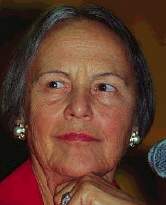 Iotti |
Ipatas, Peter (b. July 31, 1958), governor of Enga (1997- ). He was also Papua New Guinean minister of mining (2001).
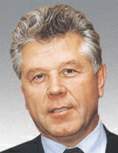 Ipatov |
Ipoto Eyebu Bakand'Asi, (Martin) (b. Aug. 8, 1933, Léopoldville, Belgian Congo [now Kinshasa, Congo (Kinshasa)]), foreign minister of Zaire (1991). He was also ambassador to Algeria (1967-69), India (1970), Ethiopia (1970-72), West Germany (1975-77?), Zimbabwe (1980-88), and Poland (1988-91) and permanent representative to the United Nations (1972-73).
Ipsilanti, Alexandru Ioan (b. 1726 - d. [executed] Jan. 25 [Jan. 13, O.S.], 1807, Constantinople, Ottoman Empire [now Istanbul, Turkey]), prince of Walachia (1774-82, 1796-97) and Moldavia (1786-88). He was also grand dragoman of the Porte (1774).
Ipsilanti, Constantin Alexandru (b. 1760, Constantinople, Ottoman Empire [now Istanbul, Turkey] - d. July 9 [June 27, O.S.], 1816, Kiev, Russia [now in Ukraine]), prince of Moldavia (1799-1801) and Walachia (1802-06, 1806-07, 1807); son of Alexandru Ioan Ipsilanti. He was also grand dragoman of the Porte (1796-99).
Iqbal, Ahsan (b. March 28, 1959, Lahore, Pakistan), interior minister of Pakistan (2017-18). He was also minister of education and minorities (2008) and planning, development, and reforms (2013-17).
Iqbal, Rao Sikandar (b. 1943, Okara, Pakistan - d. Sept. 29, 2010, Okara), defense minister of Pakistan (2002-07).
Iragorri Hormaza, (Jorge) Aurelio (b. April 28, 1937 - d. Sept. 7, 2020, Bogotá, Colombia), Colombian politician. He was governor of Cauca (1975-76) and president of the Senate (1990-91).
Iragorri Valencia, Aurelio (b. July 15, 1966, Popayán, Colombia), interior minister of Colombia (2013-14); son of Aurelio Iragorri Hormaza. He was also minister of agriculture (2014-17).
Iraizos, Francisco (b. 1857, La Paz, Bolivia - d. 1930), foreign minister of Bolivia (1921, 1929). He was also minister of interior and justice (1923-25, 1928-29).
Irakli II, also spelled Erekle (b. Oct. 18 [Oct. 7, O.S.], 1721 [or Nov. 18 (Nov. 7, O.S.), 1720], Telavi, Kakhet`i [now in Georgia] - d. Jan. 22 [Jan. 11, O.S.], 1798, Telavi), king of Kakhet`i (1744-62) and K`art`li and Kakhet`i (1762-98).
Irarrázaval (Larraín), Manuel José (Leonardo de las Mercedes) (b. Nov. 7, 1834, Santiago, Chile - d. Feb. 14, 1896, New York City), interior minister of Chile (1891).
Irarrázaval (Lecaros), Raúl (b. Oct. 18, 1906, Santiago, Chile - d. June 13, 2001, Santiago), finance minister of Chile (1950-51); grandnephew of Manuel José Irarrázaval. He was also ambassador to the Vatican (1951-52) and West Germany (1974-75).
Iravani, Amir Saeid (b. 1961), Iranian diplomat. He has been ambassador to Iraq (1998-2001) and permanent representative to the United Nations (2022- ).
Iredell, James (b. Nov. 2, 1788, Edenton, Chowan county, N.C. - d. April 13, 1853, Edenton), governor of North Carolina (1827-28); nephew of Samuel Johnston.
Ireney, secular name Ivan (Dmitriyevich) Bekish (b. Oct. 14 [Oct. 2, O.S.], 1892, Mezhirechye, Siedlce province, Russia [now Miedzyrzec Podlaski, Poland] - d. March 18, 1981, New York City), metropolitan of All America and Canada (1965-77). He was also bishop of Japan (1953-57) and archbishop of Japan (1957-60, 1962-64) and Boston (1960-62).
Irgens, Johannes (b. July 31, 1869, Ås, Akershus [now in Viken], Norway - d. Dec. 29, 1939, Oslo, Norway), foreign minister of Norway (1910-13) and acting governor of Hedemarkens amt (1915-16). He was also minister to the United Kingdom (1908-10), Denmark, Belgium, and the Netherlands (1916-22), Italy and Switzerland (1922-39), Greece (1927-35), and Romania (1930-31).
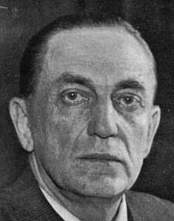 K. Irgens |
Irías (Sandres), Julián (b. April 29, 1873, Pueblo Nuevo, Estelí [or Ocotal, Nueva Segovia], Nicaragua - d. Nov. 20, 1940, Managua, Nicaragua), interior minister (1905-06, 1936), foreign minister (1909-10, 1931), and provisional president (1936) of Nicaragua. He was also minister to Costa Rica (1903-05) and minister of development and public works (1908-09). In 1916 he was a presidential candidate but withdrew because of U.S. opposition.
Iribarne, Alberto (Juan Bautista) (b. Aug. 2, 1950), justice minister of Argentina (2005-07). In 2020 he was appointed ambassador to Uruguay.
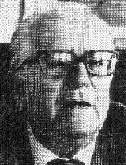 I. Iribarren |
Iribarren Cabezas, Juan Antonio (b. May 7, 1885, Vicuña, Chile - d. April 11, 1968, Santiago, Chile), interior minister (1946) and acting president (1946) of Chile. He was also education minister (1940-41, 1945-46).
Irigoyen (Bustamante), Bernardo de (b. Dec. 18, 1822, Buenos Aires, Argentina - d. Dec. 27, 1906, Buenos Aires), foreign minister (1875-77, 1880-82) and interior minister (1877-78, 1882-85) of Argentina and governor of Buenos Aires (1898-1902). He was also president of the Chamber of Deputies (1875).
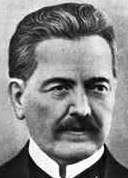 H. Irigoyen |
Irigoyen (Arias Larrea), Manuel, also spelled Yrigoyen (b. March 31, 1830, Lima, Peru - d. June 5, 1912, Chorrillos, Peru), foreign minister (1878-79, 1879, 1889-90, 1894-95) and prime minister (1878-79, 1890, 1894-95) of Peru. He was also chargé d'affaires in Prussia and Belgium (1861-66), minister to Brazil, Argentina, and Uruguay (1873-78), finance and commerce minister (1886-87), and president of the Senate (1905-06).
Irigoyen Diez Canseco, Pedro (Osvaldo Benjamín), also spelled Yrigoyen (b. Feb. 28, 1886, Lima, Peru - d. Sept. 17, 1957, Lima), Peruvian diplomat; son of Manuel Irigoyen. He was minister to Belgium (1931-32) and Chile (1932-37) and ambassador to Spain (1941-43), Cuba (1943-44), and Italy (1944-46).
Irimescu, Radu (b. Dec. 9, 1890, Galati, Romania - d. May 17, 1975, Los Angeles, Calif.), war minister of Romania (1937). He was also minister of air and marine (1937-38) and minister to the United States (1938-40).
 Irinaios | 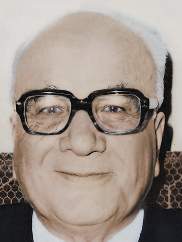 Irmak |
Irinej, original name Miroslav Gavrilovic (b. Aug. 28, 1930, Vidova village, near Cacak, Yugoslavia [now in Serbia] - d. Nov. 20, 2020, Belgrade, Serbia), patriarch of the Serbian Orthodox Church (2010-20). He was bishop of Moravica (1974-75) and Nis (1975-2010).
Iriondo (Zavalla), Manuel María (del Corazón de Jesús) de (b. Dec. 26, 1873, Santa Fe, Santa Fe, Argentina - d. Dec. 4, 1958, Buenos Aires, Argentina), federal interventor in San Luis (1907), finance minister of Argentina (1907-10), and governor of Santa Fe (1937-41). He was also president of Banco de la Nación Argentina (1910-18) and minister of justice and public instruction (1932-35).
Irklis, Peteris, Russian Pyotr (Andreyevich) Irklis (b. Jan. 15 [Jan. 3, O.S.], 1887, Riga, Russia [now in Latvia] - d. [executed] Sept. 9, 1937, Leningrad, Russian S.F.S.R. [now St. Petersburg, Russia]), first secretary of the Communist Party committee of the Karelian A.S.S.R. (1935-37).
Irmak, (Mahmut) Sadi (b. May 15, 1904, Seydisehir, Turkey - d. Nov. 11, 1990, Istanbul, Turkey), prime minister of Turkey (1974-75). He was speaker of the Consultative Assembly in 1981-83.
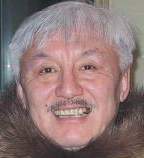 Irniq |
Irvine, Sir William (Hill) (b. July 6, 1858, Newry, County Down, Ireland - d. Aug. 20, 1943, Toorak, Melbourne, Vic.), premier (1902-04) and acting governor (1920-21, 1926, 1931-34) of Victoria; knighted 1914. He was also attorney-general (1899-1900, 1902-03) and chief justice and lieutenant governor (1918-35) of Victoria and attorney-general of Australia (1913-14).
Irvine of Lairg, Alexander (Andrew Mackay) Irvine, Baron, byname Derry Irvine (b. June 23, 1940, Inverness, Scotland), British lord chancellor (1997-2003). He was made a life peer in 1987.
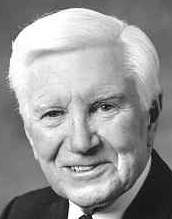 C. Irving |
Irving, Washington (b. April 3, 1783, New York City - d. Nov. 28, 1859, Tarrytown, N.Y.), U.S. diplomat. A famous writer, he was minister to Spain (1842-46).
Irwin, Frederick Chidley (b. March 22, 1794, Drogheda, Louth, Ireland - d. March 31, 1860, Cheltenham, Gloucestershire, England), acting governor of Western Australia (1832-33, 1847-48); cousin of Sir James Stirling.
Irwin, John N(ichol) (b. Dec. 25, 1844, Butler county, Ohio - d. Dec. 22, 1905, Hot Springs, Ark.), governor of Idaho (1883) and Arizona (1890-92). He was also U.S. minister to Portugal (1899-1900).
 A.K. al-Iryani |
 A.R. al-Iryani |
Isa, Mohammad (b. June 4, 1909, Bindjei, Netherlands East Indies [now Binjai, Sumatera Utara, Indonesia] - d. Nov. 17, 1979, Jakarta, Indonesia), governor of Sumatera Selatan (1946-52).
Isa, Ramez J(orge), byname Ronchi Isa (b. Oct. 17, 1917, Curaçao - d. March 17, 2005, Curaçao), prime minister of the Netherlands Antilles (1971, 1972-73).
 Isa |
Isaac, Mark (b. April 25, 1951), foreign minister of Grenada (1998-99, 1999-2000). He was previously minister of health, housing, and environment (1995-96), agriculture, forestry, lands, and fisheries (1996-98), and health and environment (1998).
Isaac, Pierre (Jean Marc) (b. Nov. 19, 1927, Toulouse, France - d. Sept. 9, 2012, Bordeaux, France), administrator-superior of Wallis and Futuna (1979-80).
Isaacs, Grafton (Cephas) (b. Aug. 19, 1928, Vermont, St. Vincent - d. Nov. 28, 2015, Upper Villa, St. Vincent), home affairs minister of Saint Vincent (1975-77). He was also minister of tourism (1975-77) and communications and works (1977-80) and attorney general and minister of legal affairs (1980-84).
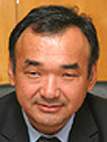 Isabekov |
Isabel II, in full María Isabel Luisa de Borbón y de Borbón (b. Oct. 10, 1830, Madrid, Spain - d. April 9, 1904, Paris, France), queen of Spain (1833-68); daughter of Fernando VII and Queen María Cristina (1806-1878).
Isabella, Gilbert (P.) (b. 1961, Willemstad, Curaçao), representative of the national government for the Caribbean Netherlands (2014-18).
Isaczai, Ghulam M(ohammad), Afghan diplomat. He was permanent representative to the United Nations (2021).
Isai, Hekuran (b. May 7, 1933, Peqin, Elbasan district, Albania - d. March 26, 2008), interior minister of Albania (1982-89, 1990-91). He was also first secretary of the party committee of Dibra district (1972-75) and a deputy premier (1987-89, 1990-91).
Isaias Afewerki: see Afewerki, Isaias.
Isakeyev, Bayaly (Dikambayevich) (b. 1897, Uchekinskaya volost, Semirechye oblast, Russia [now in Kyrgyzstan] - d. [executed] November 1938, near Tash-Debe, Kirgiz S.S.R.), chairman of the Council of People's Commissars of the Kirgiz A.S.S.R./S.S.R. (1933-37). He was also people's commissar of agriculture (1929-30).
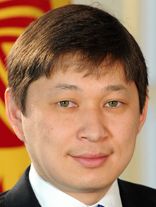 Isakov |
Isaksson, (Gunnar) Martin (b. June 20, 1921, Hammarland, Åland Islands, Finland - d. December 2001), lantråd (1967-72) and governor (1972-82) of the Åland Islands. He was also Finnish ambassador to Iceland (1982-85).
Isanov, Nasirdin (b. Nov. 7, 1943, Kok-Bel settlement, Kirgiz S.S.R. - d. [car crash] Nov. 29, 1991, en route from Osh to Jalal-Abad, Kyrgyzstan), vice president (1990-91) and prime minister (1991) of Kyrgyzstan. He was also minister of construction (1983-86).
 Isaq |
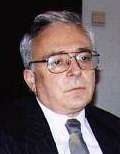 Isarescu |
Isayev, Eli (Abubakarovich) (b. Dec. 31, 1964), acting prime minister of Chechnya (2003-04).
Isayev, Geydar (Isa ogly) (b. 1936 - d. 1999), chairman of the Council of Ministers (1988) and first secretary of the Communist Party committee (1988-90) of the Nakhichevan A.S.S.R. He was also chairman of the State Committee for Vocational Education of the Azerbaijan S.S.R. (1983-88).
Isayev, Tadzhiddin (b. 1904, Garm, Russia [now in Tajikistan] - d. 1971, Dushanbe, Tadzhik A.S.S.R.), first secretary of the Communist Party committee of Gorno-Badakhshan autonomous oblast (1948-49). He was also people's commissar of food industry of the Tadzhik S.S.R. (1937-38).
Isayev, Uraz (Dzhanzakovich) (b. 1899, Lbishchensky district, Uralsk oblast, Russia [now in Zapadno-Kazakhstan oblast, Kazakhstan] - d. [executed] Aug. 29, 1938), chairman of the Council of People's Commissars of the Kazakh A.S.S.R./S.S.R. (1928-38).
Isberg, Paul Gustaf (Waldemar) (b. Sept. 2, 1848, Lund, Sweden - d. Sept. 10, 1908), governor of Stockholm (1896-1908).
Isea (Romero), Rafael (Eduardo) (b. Feb. 18, 1968, Maracay, Aragua, Venezuela), finance minister of Venezuela (2008) and governor of Aragua (2008-12).
Isekeshev, Aset (Orentayevich) (b. Aug. 17, 1971, Karaganda, Kazakh S.S.R.), head of Astana city (2016-18). He was also Kazakh minister of industry and trade (2009-10), industry and new technologies (2010-14), and investment and development (2014-16), a deputy prime minister (2010-14), head of the administration of the president (2018-19), and secretary of the Security Council (2020-22).
Isenschmid, Josef (b. June 21, 1908 - d. Sept. 17, 2009), Schultheiss of Luzern (1960, 1967).
Ishak, Awang Faroek (b. July 31, 1948, Tenggarong [now in Kalimantan Timur], Indonesia), governor of Kalimantan Timur (2008-18).
Ishanov, Khekim (Orazovich), Turkmen Hekim (Orazowiç) Isanow (b. 1942, Kyariz, Krasnovodsk oblast, Turkmen S.S.R. [now Balkan velayat, Turkmenistan]), a deputy prime minister of Turkmenistan (1994-96). He was also minister of oil and gas (1994-95).
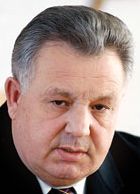 Ishayev |
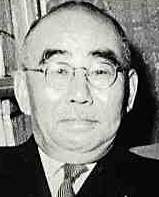 Ishibashi |
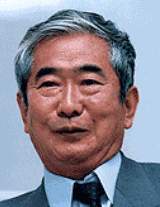 Ishihara |
Ishii, Kikujiro, in full Shishaku (Viscount) Kikujiro Ishii (b. March 10, 1866, Chiba, Japan - d. [killed in U.S. air raid] May 25, 1945, Tokyo, Japan), foreign minister of Japan (1915-16). He was also ambassador to France (1912-15, 1920-27) and the United States (1918-19). He became baron in 1911 and viscount in 1916.
Ishii, Masahiro (b. Nov. 29, 1945), governor of Okayama (1996-2012).
Ishii, Takakazu (b. Dec. 15, 1945), governor of Toyama (2004-20).
Ishikane, Kimihiro (b. Jan. 4, 1958), Japanese diplomat. He has been ambassador to Canada (2017-19) and permanent representative to the United Nations (2019- ).
Ishikawa, Yoshinobu (b. Nov. 24, 1940), governor of Shizuoka (1993-2009).
Ishmetov, Timur (Amindjanovich) (b. 1979, Tashkent, Uzbek S.S.R.), finance minister of Uzbekistan (2020-22).
Ishola, Kolapo (Olawuyi) (b. June 6, 1934, Pade village, near Ikereku [now in Oyo state], Nigeria - d. Aug. 9, 2011, Ibadan, Nigeria), governor of Oyo (1992-93).
Isidor, secular name Iakov (Sergeyevich) Nikolsky (b. Oct. 12 [Oct. 1, O.S.], 1799, Nikolskoye village, Tula province, Russia - d. Sept. 19 [Sept. 7, O.S.], 1892, St. Petersburg, Russia), metropolitan of St. Petersburg (1860-92). He was also bishop of Dmitrov (1834-37) and Polotsk (1837-40), bishop (1840-41) and archbishop (1841-44) of Mogilyov, exarch of Georgia (1844-58), and metropolitan of Kiev (1858-60).
Isik, Fikri (b. Sept. 13, 1965, Babacan, Gümüshane province, Turkey), defense minister of Turkey (2016-17). He was also minister of science, industry, and technology (2013-16) and a deputy prime minister (2017-18).
Isik, Hasan Esat (b. Oct. 21, 1916, Constantinople, Ottoman Empire [now Istanbul, Turkey] - d. July 2, 1989, Ankara, Turkey), foreign minister (1965) and defense minister (1974, 1977, 1978-79) of Turkey. He was also ambassador to Belgium (1962-64), the Soviet Union (1964-65, 1966-68), and France (1968-73).
Isingarin, Nigmatzhan (Kabatayevich) (b. Sept. 29, 1941, Burino, Chelyabinsk oblast, Russian S.F.S.R.), Kazakh politician. He was minister of transport (1991-94) and a first deputy prime minister (1994-97).
Iskakov, Bolat (Gazizovich) (b. Feb. 9, 1947, Ushtobe, Taldy-Kurgan oblast [now in Almaty oblast], Kazakh S.S.R.), interior minister of Kazakhstan (2000-02). He was also ambassador to Belarus (2006-08).
Iskakov, Kuanyshbek (Dosmailovich) (b. March 15, 1968, Kzyl-Orda, Kazakh S.S.R. [now Kyzylorda, Kazakhstan]), head of Kyzylorda oblast (2019-20).
Iskaliyev, Gali (Nazhmedenovich) (b. Feb. 6, 1970, Talovka, Uralsk oblast, Kazakh S.S.R. [now Zapadno-Kazakhstan oblast, Kazakhstan]), head of Zapadno-Kazakhstan oblast (2019-22); son of Nazhameden Iskaliyev.
Iskaliyev, Nazhameden (Ikhsanovich) (b. Sept. 5, 1941, Krasnoyarsk rayon, Astrakhan oblast, Russian S.F.S.R.), head of Zapadno-Kazakhstan oblast (1992-93) and Kokshetau oblast (1993). He was also Kazakh ambassador to Uzbekistan and Tajikistan (1994-97) and Ukraine and Moldova (1997-99).
Iskandarov, Akbarsho (Iskandarovich), Akbarsho also spelled Akbarshah (b. Aug. 1, 1951, Darvoz district, southeastern Tadzhik S.S.R.), chairman of the Provincial Council (1990-92) and of the Supreme Council (1992-93) of Gorno-Badakhshan and acting president of Tajikistan (1991, 1992). He was also ambassador to Turkmenistan (1993-2000) and Kazakhstan (2000-07).
Iskenderov, Mamed (Abdul ogly) (b. Dec. 17 [Dec. 4, O.S.], 1915, Eyvazlar, Russia [now in Azerbaijan] - d. May 28, 1985, Baku, Azerbaijan S.S.R.), chairman of the Council of Ministers (1959-61) and chairman of the Presidium of the Supreme Soviet (1961-69) of the Azerbaijan S.S.R. He was also first secretary of the party committee of Baku city (1953-54).
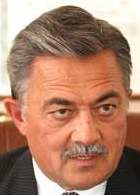 Iskhakov |  S.N. Islam |
Islam, Syed Ashraful (b. 1952, Mymensingh, Pakistan [now in Bangladesh] - d. Jan. 3, 2019, Bangkok, Thailand), Bangladeshi politician; son of Syed Nazrul Islam. He was minister of local government, rural development, and cooperatives (2009-15) and public administration (2015-19).
Islam, Syed Nazrul (b. 1925, Jamodal Dampara, Mymensingh district, Bengal, India [now in Kishoreganj district, Bangladesh] - d. [killed] Nov. 3, 1975, Dacca [now Dhaka], Bangladesh), acting president of Bangladesh (1971-72). He was vice president (1971-72, 1975) and minister of industries (1972-75).
Islami, Kastriot (Selman) (b. Aug. 18, 1952, Tiranë, Albania), Albanian politician. He was education minister (1991), chairman of the People's Assembly (1991-92), acting president (1992), deputy prime minister (1998), finance minister (2002-03), and foreign minister (2003-05).
Islamov, Sharustam (b. 1899, Tashkent, Russia [now in Uzbekistan] - d. [executed] 1938), chairman of the Council of People's Commissars of the Turkestan A.S.S.R. (1924). He was also people's commissar of communal services and agriculture of the Uzbek S.S.R. (1930s).
Islington, John Poynder Dickson-Poynder, (1st) Baron (b. Oct. 31, 1866, Ryde, Isle of Wight, England - d. Dec. 6, 1936, London, England), governor of New Zealand (1910-12). He was created baron in 1910.
Islyukov, Semyon (Matveyevich) (b. Feb. 7, 1915, Tayba-Taushevo, Simbirsk province [now in Tatarstan republic], Russia - d. Oct. 7, 1998, Cheboksary, Chuvashia, Russia), chairman of the Council of Ministers (1955), first secretary of the Communist Party committee (1955-68), and chairman of the Presidium of the Supreme Soviet (1968-85) of the Chuvash A.S.S.R. He was also chairman of the Supreme Soviet (1947-55).
Ismail, (Muhammad) (b. Dec. 31, 1927, Maos, Netherlands East Indies [now in Jawa Tengah, Indonesia] - d. Feb. 23, 2008, Semarang, Jawa Tengah), governor of Jawa Tengah (1982-92).
Ismail (al-Jawfi), Abdul Fattah, Arabic `Abd al-Fattah Isma`il al-Jawfi (b. July 28, 1939, al-Hujariyah district, Yemen - d. Jan. 13, 1986, Aden, Yemen [Aden]), president of Yemen (Aden) (1978-80). He was killed in the fighting between rival factions in the government in January 1986, in which his faction was ultimately victorious over that of Pres. Ali Nasir Muhammad. His death was only announced by the new government on February 10.
Ismail, Abdul Malek (b. Nov. 26, 1936, Aden [now in Yemen]), Yemen (Aden) politician. He was minister of labour and social welfare (1967-68) and economy, commerce, and planning (1968-70), permanent representative to the United Nations (1970-73), and ambassador to Egypt (1973-75) and Sudan (1975).
Ismail, Abdullahi Sheikh (d. May 7, 2021, Mogadishu, Somalia), foreign minister of Somalia (2004-06). He was also ambassador to the Soviet Union (1984-88) and minister of transport and civil aviation (2015).
 E.A. Ismail | 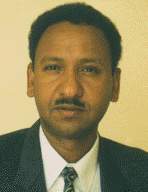 M.O. Ismail | 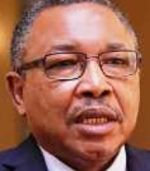 O.G.A. Ismail | 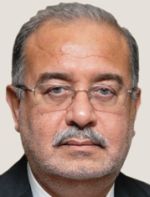 S. Ismail |
Ismail (al-Amin), Mustafa Osman, Arabic Mustafa `Uthman Isma`il (b. 1955, Romi al-Bakri, near Dongola, Sudan), foreign minister of The Sudan (1998-2005). He was also minister of investment (2012-14) and ambassador to Switzerland (2016-20).
Ismail, Omar Gamar Aldin, acting foreign minister of The Sudan (2020-21).
Ismail (Mohamed), Sherif (b. July 6, 1955 - d. Feb. 4, 2023, Cairo, Egypt), prime minister of Egypt (2015-18). He was also minister of petroleum and mineral resources (2013-15).
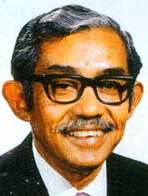 Ismail bin D.A.R. |  Tuanku Ismail |
Ismail Khan (bin Ibrahim Khan), Tan Sri (b. June 18, 1905, Taiping, Perak, Federated Malay States [now in Malaysia] - d. April 18, 2000, Seremban, Negeri Sembilan, Malaysia), Malaysian politician. He was chief justice of Borneo (1968-73) and president of the Dewan Negara (1981-85). He was awarded the title Tan Sri in 1984.
Ismail Nasiruddin Shah ibni al-Marhum Sultan Zainal Abidin (Muadzam Shah), Tuanku (b. Jan. 24, 1907, Kuala Terengganu, Terengganu [now in Malaysia] - d. Sept. 20, 1979, Kuala Terengganu), sultan of Terengganu (1945-79) and paramount ruler of Malaysia (1965-70).
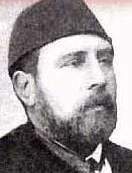 Isma`il Pasha |
 Ismail Sabri |
Ismailov, Ibragim (b. 1901, Nyut, Fergana oblast, Russia [now in Gorno-Badakhshan, Tajikistan] - d. [executed] Oct. 20, 1938, Stalinabad, Tadzhik S.S.R. [now Dushanbe, Tajikistan]), chairman of the Executive Committee of Gorny Badakhshan (1926-28). He was also people's commissar of finance (1930-32) and commerce (1936-37) of the Tadzhik S.S.R.
Ismailov, Kyazim (Geydar ogly), first secretary of the Communist Party committee of the Nakhichevan A.S.S.R. (1938?-40).
Ismailov, Ramazan (Akper ogly) (b. 1928), chairman of the Council of Ministers of the Nakhichevan A.S.S.R. (1964-66?).
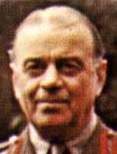 Ismay | 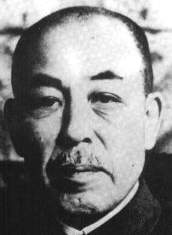 Isogai |
Ismayev, Karimulla (Khusnullovich) (b. June 24 [June 12, O.S.], 1898, Staraya Karmala, Kazan province [now in Samara oblast], Russia - d. 1978), chairman of the Council of People's Commissars of the Tatar A.S.S.R. (1928-30).
Isnard, (Honoré) Maximin (or Henri Maximin Isnard) (b. Feb. 24, 1758 [or Nov. 16, 1755], Grasse [now in Alpes-Maritimes département], France - d. March 12, 1825, Grasse), president of the National Convention of France (1793).
Isogai, Rensuke (b. 1886 - d. June 6, 1967, Ichinomiya, Japan), Japanese governor of Hong Kong (1942-44).
Isong, Clement (Nyong) (b. April 20, 1920, Eket [now in Akwa Ibom state], Nigeria - d. May 29, 2000), governor of Cross River (1979-83). He was governor of the Central Bank of Nigeria in 1967-75.
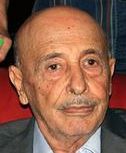 Issa | 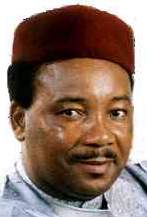 Issoufou |
Issembe, Aristide (b. Dec. 20, 1910, Libreville, Gabon - d. July 1, 1997), Gabonese diplomat. He was ambassador to France (1961-62), the United States (1963-66), Taiwan (1967-68), and Canada (1971-72) and permanent representative to the United Nations (1962-65).
Issoïbeka, Pacifique (b. April 13, 1941, Bokouélé, Middle Congo [now Congo (Brazzaville)]), finance minister of Congo (Brazzaville) (2005-09).
Issoufou, Mahamadou (b. 1952, Dandaji, Niger), prime minister (1993-94) and president (2011-21) of Niger. He was also president of the National Assembly (1995-96) and chairman of the Economic Community of West African States (2019-20). He was an unsuccessful presidential candidate in 1993, 1996, 1999, and 2004.
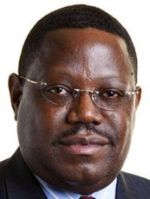 Issoze-Ngondet |
Istúriz (Almeida), Aristóbulo (b. Dec. 20, 1946, Curiepe, Miranda, Venezuela - d. April 27, 2021, Caracas, Venezuela), governor of Anzoátegui (2012-16) and executive vice president of Venezuela (2016-17). He was also mayor of Libertador (1993-96), minister of education (2001-07, 2018-21), vice president for territorial socialism (2017-21), and minister of communes and social movements (2017, 2018).
Istúriz y Montero, Francisco Javier de (b. Oct. 31, 1785, Cádiz, Spain - d. April 2, 1871, Madrid, Spain), prime minister and foreign minister of Spain (1836, 1846-47, 1858). He was also president of the Cortes (1823), the Estamento de Procuradores (1835-36), the Congress of Deputies (1838-39, 1840), and the Senate (1858), interior minister (1846), and ambassador to the United Kingdom (1847-48, 1850-54, 1858-62), Russia (1856-58), and France (1863-64).
Itaboraí, Joaquim José Rodrigues Torres, visconde de (b. Dec. 13, 1802, São João de Itaboraí, Rio de Janeiro province [now state], Brazil - d. Jan. 8, 1872, Rio de Janeiro, Brazil), chairman of the Council of Ministers of Brazil (1852-53, 1868-70). He was also minister of navy (1831-32, 1832-34, 1837-39, 1840, 1843-44), finance (1832, 1848-53, 1868-70), and war (1839), president of Rio de Janeiro (1834-36), and president of the Bank of Brazil (1855-57, 1859). He was made viscount in 1854.
Itälä, Ville (Heimo Antero) (b. May 10, 1959, Luumäki, Finland), interior minister of Finland (2000-03). He was also deputy prime minister (2001-03).
 Italeli |
Italmazov, Babaniyaz (Ovlyakuliyevich), Turkmen Babanyýaz (Öwlýagulyýewiç) Italmazow (b. 1966, Karabekaul, Turkmen S.S.R. [now Garabekevyul, Lebap velayat, Turkmenistan]), a deputy prime minister of Turkmenistan (2013-14). He was also minister of building materials industry (2011-12) and industry (2012-13) and acting chairman of Turkmenkhimiya State Concern (2013-14).
Itamaracá, Antonio Peregrino Maciel Monteiro, barão de (b. April 30, 1804, Recife, Brazil - d. Jan. 5, 1868, Lisbon, Portugal), foreign minister of Brazil (1837-39). He was also president of the Chamber of Deputies (1852-54) and minister to Portugal (1854-68). He was made baron in 1860.
Itamaracá, Thomaz Antonio Maciel Monteiro, barão de (b. 1780, Pernambuco captaincy [now state], Brazil - d. Nov. 24, 1847, Pernambuco province [now state]), acting president of Pernambuco (1840). He was made baron in 1843.
Itapemirim, Joaquim Marcellino da Silva Lima, barão de (b. 1780, Espírito Santo captaincy [now state], Brazil - d. Dec. 18, 1860, Itapemirim, Espírito Santo), acting president of Espírito Santo (1849, 1853-54, 1855-56, 1857). He was made baron in 1841.
Itapicuru-Mirim, José Félix Pereira (Pinto) de Burgos, barão de (b. 1780, Maranhão province [now state], Brazil - d. April 9, 1854, Rio de Janeiro, Brazil), president of Pará (1825-28, 1830-31) and war minister of Brazil (1835). He was made baron in 1829.
Itapitocahy, Miguel Rodrigues Barcellos, barão de (b. June 22, 1824, Pelotas, Rio Grande do Sul, Brazil - d. Dec. 1, 1896, Pelotas), acting president of Rio Grande do Sul (1885). He was made baron in 1888.
Itaporanga, Domingos Dias Coelho e Mello, barão de (b. 1785 - d. April 11, 1874, Sergipe province [now state], Brazil), member of the provisional junta of Sergipe (1822-24). He was made baron in 1860.
Itaúna, Candido Borges Monteiro, barão e visconde de (b. Oct. 12, 1812, Rio de Janeiro, Brazil - d. Aug. 25, 1872, Rio de Janeiro), president of São Paulo (1868-69). He was also Brazilian minister of agriculture and public works (1872). He was made baron in 1867 and viscount in 1872.
Itno, Ibrahim Mahamat (b. 1950 - d. [executed] 1989 or 1990), interior minister of Chad (1984-89); half-brother of Idriss Déby Itno.
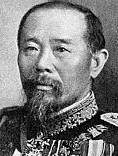 H. Ito |
Ito, Masayoshi (b. Dec. 15, 1915, Fukushima ken - d. May 20, 1994), acting prime minister (1980) and foreign minister (1980-81) of Japan.
Ito, Yuichiro (b. Nov. 17, 1947), governor of Kagoshima (2004-16).
Itriago Chacín, Pedro (b. Sept. 9, 1875, Zaraza, Guárico state, Venezuela - d. May 19, 1936, Canary Islands, Spain), foreign minister (1921-36) and acting president (1931) of Venezuela.
Itsundala Asang, Willy (b. April 9, 1962, Idiofa, Léopoldville province [now in Kwilu], Congo [Léopoldville (now Kinshasa)]), governor of Kwilu (2019- ).
Itú, Antonio de Aguiar Barros, visconde, conde e marquês de (b. Dec. 25, 1823, Itu, São Paulo, Brazil - d. Jan. 30, 1889, São Paulo, Brazil), acting president of São Paulo (1878, 1883). He was made viscount in 1880, count in 1885, and marquess in 1887.
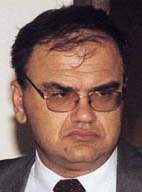 Ivanic |
Ivanisevic, Katica (b. Jan. 11, 1935, Omisalj, Krk island, Yugoslavia [now in Croatia]), president of the House of Counties of Croatia (1994-2001).
Ivanisevic, Stjepan (b. Aug. 12, 1939, Trpanj, Yugoslavia [now in Croatia] - d. May 29, 2021, Zagreb, Croatia), justice minister of Croatia (2000-01). He was also minister of administration and local self-government (2000-01).
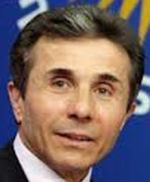 Ivanishvili |  G. Ivanov |
Ivanou, Aleg (Mikalayevich), Russian Oleg (Nikolayevich) Ivanov (b. Aug. 11, 1961), Belarusian diplomat. He has been chargé d'affaires at the United Nations (2002-04) and in Russia (2011, 2012) and ambassador to Tajikistan and Afghanistan (2016- ).
Ivanov, Aleksandr (Stepanovich) (b. Nov. 7, 1957, Syatrakasy village, Chuvash A.S.S.R., Russian S.F.S.R.), acting prime minister of Chuvashia (2011).
Ivanov (Vasilev), Aleksi (b. Oct. 22, 1922, Hagilar [now Lastuni], Romania - d. 1997), a deputy premier of Bulgaria (1986-87). He was also minister of agriculture and forestry (1986-88).
Ivanov, Apollon (Alekseyevich) (b. Jan. 7, 1798 [Dec. 27, 1797, O.S.] - d. Sept. 28 [Sept. 16, O.S.], 1844), governor of Kaspiyskaya oblast (1842-44).
Ivanov, Boris (Petrovich) (b. July 7, 1941), chairman of the Executive Committee (1991) and head of the administration (1991-96) of Chita oblast.
Ivanov, Gerasim (Ivanovich) (b. Feb. 27, 1905, Tyumerevo, Kazan province [now in Chuvashia republic], Russia - d. [executed] Feb. 23, 1939, Moscow, Russian S.F.S.R.), first secretary of the Communist Party committee of the Chuvash A.S.S.R. (1937-38).
Ivanov, Gjorge (b. May 2, 1960, Valandovo, Macedonia [now North Macedonia]), president of (North) Macedonia (2009-19).
Ivanov, Grigory (Alekseyevich) (b. Feb. 22 [Feb. 10, O.S.], 1897, Sholokovo, Vyatka province [now in Udmurtia republic], Russia - d. 1963), chairman of the Executive Committee (1931-35), the Council of People's Commissars (1935-37), and the Central Executive Committee (1935-37) of the Udmurt autonomous oblast/A.S.S.R.
Ivanov, Grigory (Ivanovich) (b. 1841 - d. Feb. 5, 1913), governor of Semirechye oblast (1887-99).
Ivanov, Hristo (Lyubomirov) (b. Sept. 13, 1974, Sofia, Bulgaria), a deputy prime minister (2014) and justice minister (2014-15) of Bulgaria.
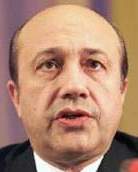 I. (S.) Ivanov |
Ivanov, Igor (Vladimirovich) (b. Sept. 13, 1937), acting head of the republic of Karachayevo-Cherkessia (1999).
Ivanov, Ivan (Ivanovich) (b. September 1889, Popov, Tver province, Russia - d. April 10, 1941, Moscow, Russian S.F.S.R.), executive secretary of the Communist Party committee of Mari autonomous oblast (1923-26).
Ivanov, Kliment (Yegorovich) (b. Nov. 10, 1936, Elgyay, Yakut A.S.S.R., Russian S.F.S.R. [now Sakha republic, Russia]), chairman of the Council of Ministers of the Yakut-Sakha S.S.R. (1990-92). He was also minister of agriculture of the Yakut A.S.S.R. (1986-88).
Ivanov, Nikita (Petrovich) (b. 1908, Petrishchevo, Smolensk province, Russia - d. June 1977, Moscow, Russian S.F.S.R.), first secretary of the Communist Party committee of the North Ossetian A.S.S.R. (1938-40).
Ivanov, Nikola (Ivanov) (b. March 2 [Feb. 18, O.S.], 1861, Kalofer, Ottoman Empire [now in Bulgaria] - d. Sept. 10, 1940, Sofia, Bulgaria), army minister of Bulgaria (1896-99). He was also chief of the General Staff (1894-96).
Ivanov, Nikolay (Agapovich) (b. 1813 - d. Nov. 7, 1873), governor of Kutaisi (1858-61) and head of Kuban oblast (1860-62).
Ivanov, Nikolay (Aleksandrovich) (b. Feb. 7 [Jan. 26, O.S.], 1842 - d. May 31 [May 18, O.S.], 1904), governor of Fergana oblast (1883-89) and governor-general of Turkestan (1901-04).
Ivanov, Nikolay (Ivanovich) (b. 1896, Moscow province, Russia - d. 1956?), acting first secretary of the Communist Party committee of the Karelian A.S.S.R. (1937-38).
Ivanov, Semyon (Aleksandrovich) (b. Sept. 14, 1922, Aranastakh, Yakut A.S.S.R., Russian S.F.S.R.), chairman of the Council of Ministers of the Yakut A.S.S.R. (1963-65). He was also minister of local industry (1954-56).
Ivanov, Sergey (Borisovich) (b. Jan. 31, 1953, Leningrad, Russian S.F.S.R. [now St. Petersburg, Russia]), defense minister of Russia (2001-07). A close confidant of Vladimir Putin, he was, like him, a former KGB intelligence officer from St. Petersburg. He was in charge of army reform, but was accused by critics of being ineffective in handling the enormous task. He was also secretary of the Security Council (1999-2001), a deputy prime minister (2005-07, 2008-11), first deputy prime minister (2007-08), and head of the Administration of the President (2011-16); in 2016 he was named special representative of the president for environmental conservation, ecology, and transport.
Ivanov, Solomon (Matveyevich) (b. 1912, Yey ulus, Irkutsk province, Russia - d. 1964, Moscow, Russian S.F.S.R.), chairman of the Council of People's Commissars/Council of Ministers of the Buryat-Mongol A.S.S.R. (1937-48, 1950-51).
Ivanov, Vasily (Ivanovich) (b. 1905 - d. October 1989), Soviet politician. He was a deputy premier of the Russian S.F.S.R. (1953-55) and Soviet ambassador to North Korea (1955-57) and Albania (1957-60).
Ivanov, Viktor (Aleksandrovich) (b. 1903, Kazan, Russia - d. Jan. 23, 1969, Moscow, Russian S.F.S.R.), first secretary of the Communist Party committee of the Chechen-Ingush A.S.S.R. (1940-44).
Ivanov, Vitaly (Innokentievich) (b. Nov. 10, 1946), acting governor of Irkutsk oblast (1997).
Ivanov, Vladimir (Ivanovich) (b. March 23 [March 11, O.S.], 1893, Tula, Russia - d. [executed] March 15, 1938), first secretary of the Communist Party of the Uzbek S.S.R. (1925-27). He was also first secretary of the party committee of Severny kray (1931-37) and Soviet people's commissar of forest industry (1936-37).
Ivanov, Yury (Nikolayevich) (b. Sept. 28, 1929, Kostroma oblast, Russian S.F.S.R. - d. 2002), chairman of the Council of Ministers of the Karelian A.S.S.R. (1984-89).
Ivanov-Rinov, Pavel (Pavlovich) (b. July 26, 1869 - d. af. 1926), governor of Fergana oblast (1916-17). He was also war minister in the Provisional Siberian Government at Omsk (1918).
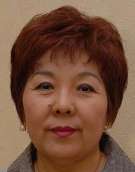 Ivanova |
Ivanovic, Bozina (b. Dec. 31, 1931, Podgorica, Banovina of Zeta, Yugoslavia [now in Montenegro] - d. Oct. 10, 2002, Podgorica), president of the Presidency of Montenegro (1988-89).
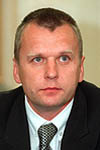 Ivanusic |
Ivashchenko, Valeriy (Volodymyrovych) (b. July 30, 1956, Zaporozhye [Zaporizhzhya], Ukrainian S.S.R.), acting defense minister of Ukraine (2009-10).
Ivashko, Vladimir (Antonovich) (b. Oct. 28, 1932, Poltava, Ukrainian S.S.R. - d. Nov. 13, 1994), first secretary of the Communist Party (1989-90) and chairman of the Supreme Soviet (1990) of the Ukrainian S.S.R. He was also first secretary of the party committee of Dnepropetrovsk oblast (1987-88) and deputy general secretary of the Communist Party of the Soviet Union (1990-91).
Ivic, Ivan (b. April 27, 1962, Kupres, Bosnia and Herzegovina), governor of West Bosnia (1998-2000).
Ivlev, Igor (Aleksandrovich) (b. May 30, 1941), acting head of the administration of Ryazan oblast (1996-97).
Iwanicki, Stanislaw (b. March 5, 1951, Biala Podlaska, Poland), justice minister and prosecutor-general of Poland (2001). He was also head of the presidential chancellery (1995).
Iweins d'Eeckhoutte, Maurice (Léon Marie Joseph Ghislain) (b. Dec. 20, 1904, Ieper, Belgium - d. Jan. 22, 1976, Uccle, Belgium), secretary-general of the Western European Union (1962-70). He was also Belgian ambassador to the United Arab Republic (1960-61).
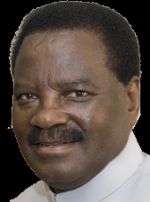 Iyambo |
Iyamuremye, Augustin (b. March 15, 1946), foreign minister of Rwanda (1999-2000). He was also minister of agriculture and livestock (1994-97), agriculture, environment, and rural development (1997-99), and information (1999-2000).
 Iyasu |
Izbaskhanov, Kylyshbek (Satylganovich) (b. Oct. 26, 1952), Kazakh politician. He was chairman of the State Committee for State Properties (1991-93) and mayor of Shymkent (1997-99).
Izbastin, Temirtay (Rymtayevich) (b. Sept. 10, 1957, Bayanaul, Pavlodar oblast, Kazakh S.S.R.), Kazakh diplomat; brother-in-law of Kasymzhomart Tokayev. He was head of the diplomatic mission (2009-19) and ambassador (2019-22) to Bulgaria.
Izcue (Gutiérrez), (Francisco Javier María) José (Raymundo) Rafael de (b. Jan. 28, 1832, Arequipa, Peru - d. Jan. 11, 1889, Lima, Peru), finance minister of Peru (1878-79).
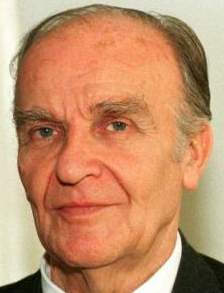 A. Izetbegovic |
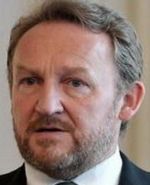 B. Izetbegovic |
Izmen, Mehmet (b. 1909, Boztekke, near Giresun, Ottoman Empire [now in Turkey] - d. Jan. 8, 1986), defense minister of Turkey (1972-73). He was also minister of agriculture (1962-63) and communications (1969).
Izmukhambetov, Baktykozha (Salakhatdinovich) (b. Sept. 1, 1948, Guryev [now Atyrau] oblast, Kazakh S.S.R.), head of Zapadno-Kazakhstan oblast (2007-12) and Atyrau oblast (2012-16). He was also Kazakh minister of energy and mineral resources (2006-07) and chairman of the Mazhilis (2016).
Izoria, Levan (b. Feb. 5, 1974, Georgian S.S.R.), defense minister of Georgia (2016-19). He was also head of the Intelligence Service (2019-20) and was appointed ambassador to Germany in 2020.
Izquierdo Fredes, Luis (b. Aug. 13, 1864, San Fernando, Chile - d. Sept. 6, 1949, Santiago, Chile), foreign minister (1910, 1931), interior minister (1910, 1916, 1922), and finance minister (1931-32) of Chile. He was also minister to Argentina (1920-22).
Izrailovich, Abram (Ilich) (b. Nov. 13 [Nov. 1, O.S.], 1883, Moscow, Russia - d. [executed] Nov. 26, 1937), executive secretary of the Communist Party committee of Crimea (1921-22). He was also chairman of the party committee of Yekaterinburg province (1919-20).
Izumida, Hirohiko (b. Sept. 15, 1962), governor of Niigata (2004-16).
Izvolsky, Aleksandr (Petrovich) (b. March 18 [March 6, O.S.], 1856, Moscow, Russia - d. Aug. 16, 1919, Paris, France), foreign minister of Russia (1906-10); son of Pyotr (Aleksandrovich) Izvolsky; son-in-law of Graf Karl (Karlovich) Tol. He was also minister resident to the Vatican (1894-97), minister to Serbia (1897), Bavaria (1897-99), Japan (1899-1902), and Denmark (1902-06), and ambassador to France (1910-17).
Izvolsky, Pyotr (Aleksandrovich) (b. April 20, 1816, Kasimov district, Ryazan province, Russia - d. Aug. 21, 1888, St. Petersburg, Russia), Russian official. He was governor of Irkutsk (1860-62), Yekaterinoslav (1862-63), and Kursk (1863-66).
Izvolsky, Pyotr (Petrovich) (b. Feb. 26 [Feb. 14, O.S.], 1863, Yekaterinoslav, Russia [now Dnipro, Ukraine] - d. Dec. 9, 1928, Le Vésinet, Yvelines, France), Russian official; brother of Aleksandr Izvolsky. He was chief procurator of the Holy Synod (1906-09).